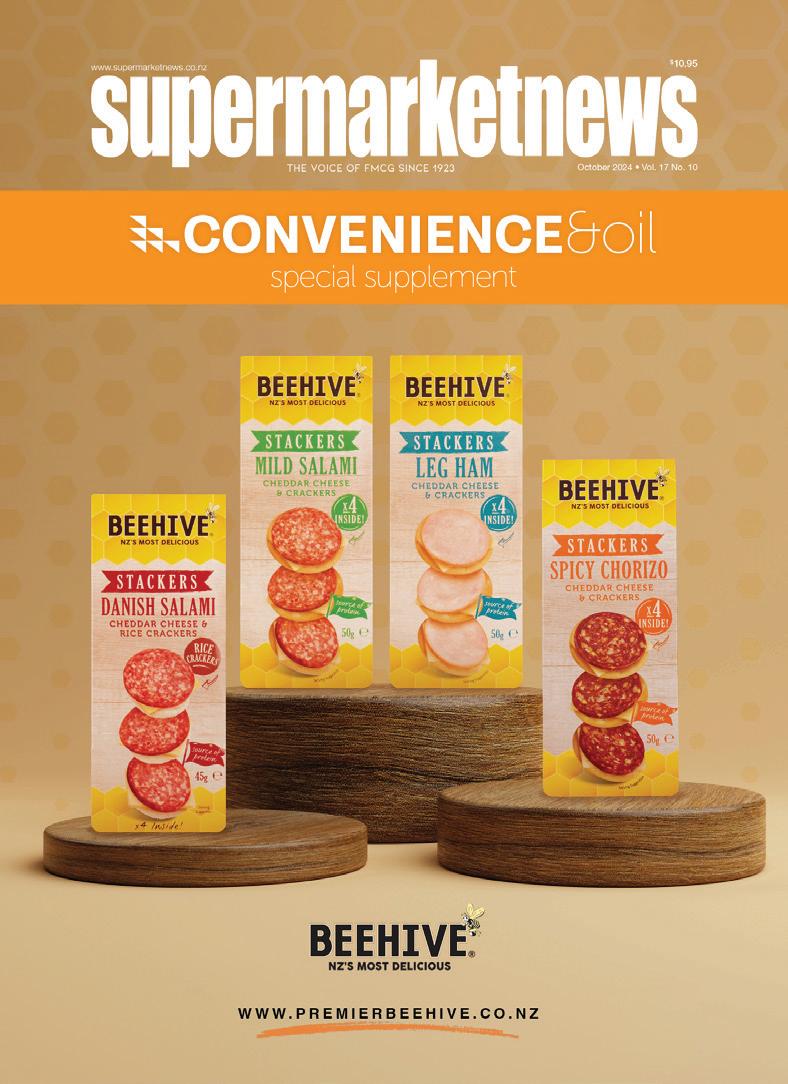

















Tania Walters | Publisher
Convenience stores continue evolving to keep pace with tech advancements and changing consumer behaviours. However, the challenge of maintaining foot traffic as technology at fuel pumps eliminates the need for customers to enter the service station is a challenge.
Pay-at-pump systems are growing more sophisticated, with many drivers now able to refuel, pay via app or by card, and drive off without setting foot inside the store. This trend
raises critical questions about how operators will innovate to make in-store shopping attractive.
One strategy is expanding product offerings beyond typical impulse buys, like snacks and drinks, to include a broader food-to-go range.
Creative thinking is required to draw customers inside, and retailers must enhance convenience further while meeting consumer trends for healthier snacks and food-to-go.
Looking overseas, the rise of unmanned service stations, especially in places like Scandinavia and Japan, points to an emerging trend that could change the industry’s landscape. These stations, which operate without on-site staff, rely on technology such as self-checkouts, automated fuel dispensers, and mobile apps for customer service. If more service stations here follow this route,
it would drastically reduce the number of interactions inside service stations. Closing off another avenue for suppliers to grow their brands beyond supermarkets.
Vending machines are also re-entering the scene as a viable solution to fill the convenience gap. Modern vending machines with advanced payment systems and refrigerated compartments can offer everything from fresh produce to gourmet meals. This innovation allows businesses to sell grocery items without requiring large store footprints or high labour costs, and it aligns with consumer preferences for fast, contactless transactions.
In this evolving retail environment, convenience combines loyalty programmes, self-checkout solutions, and healthier offerings with new delivery strategies. Whether through expanded in-store experiences or strategic placement of partner offerings, retailers are reimagining how to engage customers who no longer need to step inside the storeensuring convenience remains at the heart of their business model. n
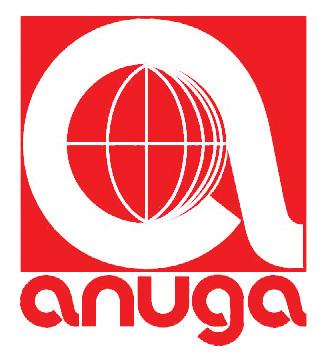
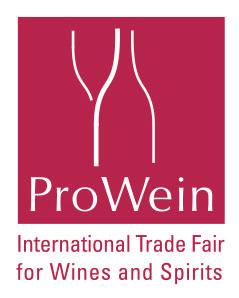
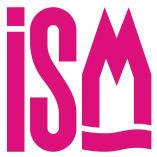












The Food and Grocery Council is an industry association for grocery suppliers providing members networking, events, industry information and strong advocacy. Contact us for information on the benefits of membership: raewyn.bleakley@fgc.org.nz
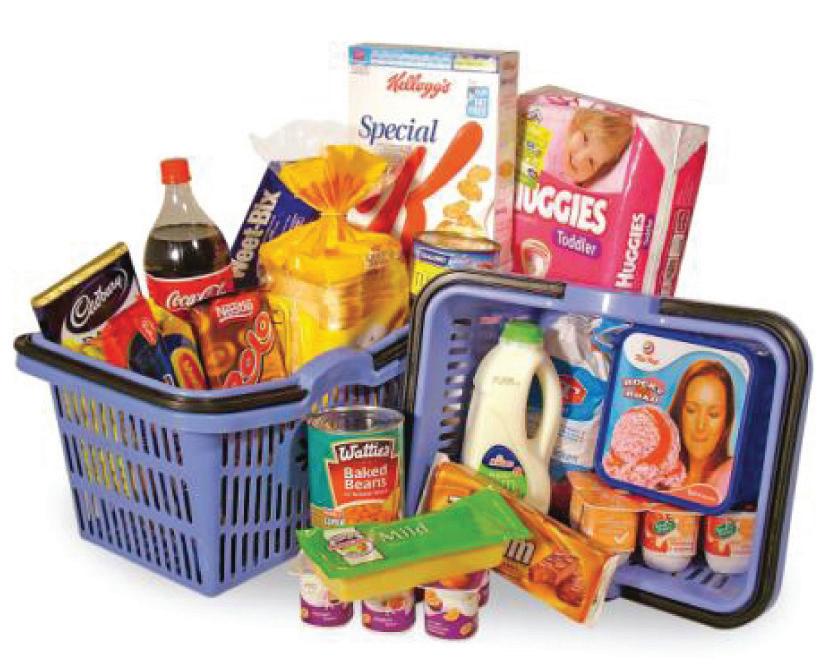




Soft drink company Karma Drinks is excited to announce a new sugar-free offering that’s set to soon hit the NZ supermarket shelves.
Introducing… a sugar-free Lemmy (lemonade) drink, launched in August to compliment the sugar-free cola already on the market.
Karma senior brand manager Imogen Weir says the new offering is in response to a recognised keenness amongst consumers to reduce their sugar intake and enjoy products that benefit their health.
“Lemmy is our number one seller in New Zealand, so it made sense to create a sugar-free version. The market has seen a lot of growth in the ‘better for you’ category, which includes low calorie and sugar-free product. And so, we are excited to launch our innovative Lemmy answer to that,” Imogen says.
The new product is in line with the company’s branding of: Karma tastes better, does better, and is better, Imogen says, and is a good fit for Karma’s “The power of positive drinking” messaging.
New Zealanders can already buy the new Lemmy offering at selected retailers such as Farro and from the Karma website. It is set to hit supermarket shelves in the lead up to summer.
In addition, Karma’s popular sugar-free cola (already in the NZ, United Kingdom and Australian markets) has had some “formulation changes. The next step will be to launch sugar-free Lemmy into the UK market, Imogen says.
The Lemmy launch is but one aspect of good news celebrated at Karma Drinks of late, both at home and abroad.
Karma Drinks has just taken out a top award at a prestigious UK enterprise event, winning the SME News-UK Enterprise Award for Best Ethical Drinks Brand 2024.
It was acknowledged at the
event that the Karma team: “knew that they had to do more than create soft drinks that just tasted good to succeed in this crowded market. By creating a company that is proud to be Fair Trade, certified as organic (by the Soil Association), and the top scoring soft drink B-corp in the UK, they have done just that. The small team that make up Karma Drinks all align with the values that the business has been built on… namely, humanity, impact and respect.”
The competition judges acknowledged that Karma Drinks not only uses organic, vegan and Fairtrade ingredients across its range, it also takes responsibility for improving the lives of growers and suppliers and preserving precious natural resources. The company is trucking along in its endeavours to become the most ethical soft drink brand in the world.

Furthermore, the SME News publication (which focuses on a Ukwide network of industry insiders) stated: “Karma Drinks knows it cannot take on the giants of the soft drink game, but what it can do is bet the best version of itself, crafting genuine connections with those who source its ingredients – making a small effort that contributes immensely to the bigger picture.”
Imogen says the comments above are in line with Karma’s recently released 2023-2024 impact report.
It’s a great document, she says, to take to our consumers, and for the Karma team to have as a reminder of the company’s “why”.
“It’s good for consumers to understand that, when they buy and drink Karma it’s like everyday activism as they are having a positive impact and are giving back to the community and land where we grow. We invest in the
places where we source our product.”
The Karma Foundation has ensured Karma Drinks is “a force for good”.
Karma Drinks Foundation chairman Albert Tucker is proud of the positive impact achieved in 2023, which has involved the enhancement of the lives of growers and ecology protection in regions where Karma ingredients are sourced. He says the company is committed to further progress in the years to come.
A full copy of the impact report is available on the Karma website https:// karmadrinks.co.nz/pages/the-people
In brief, the report states that over the last year, Karma initiatives have provided vital support to over 1,000 farming families.
“By ensuring fair trade practices and offering premium prices for their crops, we have helped improve their livelihoods and economic stability. Our investment in community projects has facilitated the construction of new schools, ensuring that children in these communities have access to quality education.
“We have also supported healthcare initiatives, providing essential medical supplies and health education to improve the overall well-being of these communities. Ecologically, our sustainable farming practices have led to the conservation of local biodiversity. We have worked closely with farmers to implement agro-forestry techniques, which enhance soil health to create a more resilient agricultural ecosystem.
“Our efforts in reforestation and organic farming methods have significantly reduced the carbon footprint of our supply chain, contributing to global efforts to combat climate change.”
All up, as Karma Drinks enters the final sector of 2024 there is, inarguably, much to celebrate…plenty that’s good (better, in fact) to drink to. n
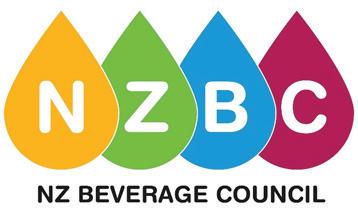
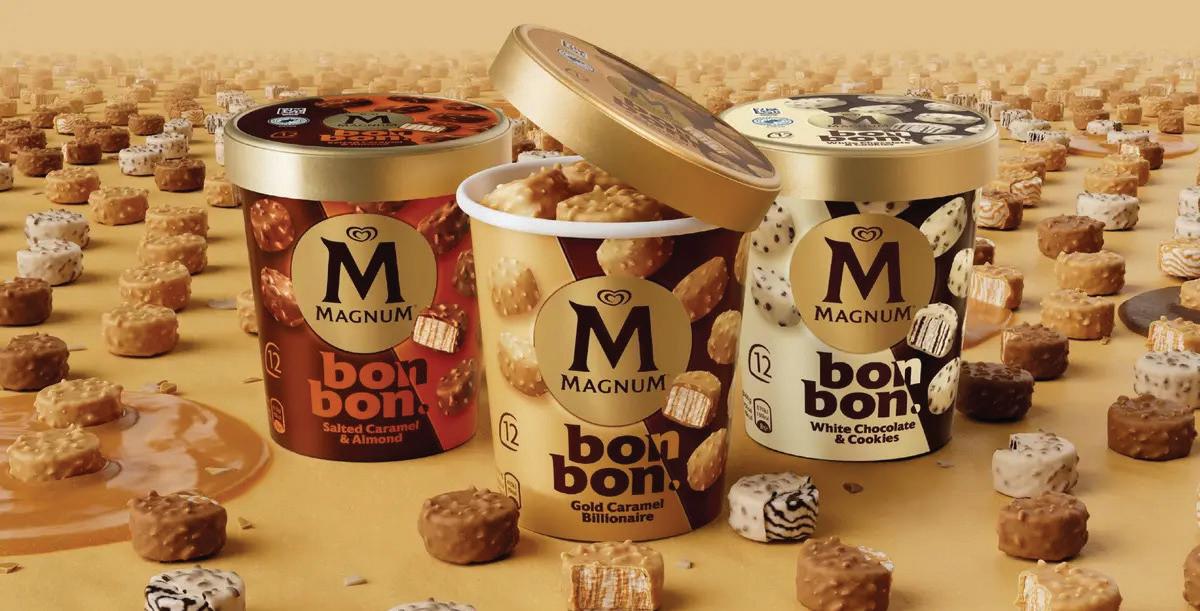
As consumers have begun to seek smaller, more frequent meals throughout the day, the snacking category has seen much growth. Addressing this trend, Magnum recently launched its first bite-sized Bon Bons and joined Ben & Jerry’s and Yasso in leveraging micro-formats.
Insights have shown that many Gen Z consumers eat at least one snack a day, and one-third of ice cream consumers in the UK were interested in trying bite-sized portions. Consumers who bought bite-sized ice creams alongside traditional formats spent 76 percent more on ice cream on average. Micro-formats have been gaining popularity, especially among Gen Z. Their taste for fun formats and new flavours has seen tapas-style dishes, shareable plates, and flexible portion sizes emerge as food trends in retail and restaurants. The ice cream category is no exception.
Designed to offer the unmissable taste of a full-sized Magnum ice cream, the new range of Magnum Bon Bons comes in 12-piece tubs that are both shareable and snackable. The Bon Bons are available in three of the brand’s most successful flavours, White Chocolate & Cookies, Gold Caramel Billionaire, and Salted Caramel & Almond. Consumers, particularly Gen Z, have
increasingly chosen to have smaller, more frequent meals throughout the day and opt for taste over quantity when it comes to treats.
“We’re building the micro-bite ice cream category by tapping into how this behaviour change has created new consumption occasions,” said Global Brand Manager Magnum Rosie Festus.
Snacking significantly increased during the pandemic, with many people turning to comfort foods. The habit hasn’t gone away, especially among younger consumers, and it has continued to gain momentum.
“Gen Z are switched on when it comes to snacking. They’re paying attention to portion size, how it makes them feel and what the experience is like.”
Nine out of ten Gen Zs admit to eating at least one snack daily, with over a third preferring snacks to meals when working from home. While potato chips (crisps) have been the top choice for 52 percent of American snackers, ice cream was the go-to for 21 percent.
From studying recent bite-size launches, Nielsen data showed that the bite-sized format drove ice cream sales. Kantar data also showed that bites helped to premiumise the ice cream category as they were often purchased in addition to other
ice cream formats.
The Magnum Bon Bon range joined Unilever’s growing ice cream snacking portfolio, including Ben & Jerry’s ‘Peaces’ pouches and ‘Poppables’ from the US Greek yogurt brand Yasso.
Yasso has been a market leader in frozen novelties in the US, and Poppables were also in high demand. In the past year, they had seen increasing dollar and unit sales, accounting for roughly a quarter of the brand’s growth.
Ben & Jerry’s has also expanded its bitesized ice cream offering, introducing a new Salted Caramel Brownie flavour to its Peaces range alongside its Cookie Dough Peaces. Both flavours come in a resealable ziplock bag, making them the perfect snack for sharing anywhere, anytime.
As consumers move from evening snacks to enjoying small portions throughout the day, formats and delivery options are evolving accordingly.
By offering its bestselling ice cream brands in smaller, shareable formats in-store or via on-demand grocery services, Unilever has not only increased the occasions for people to bring and enjoy frozen desserts but also helped deseasonalise ice cream so it can be seen as a snack option all year round. n




In the same way that FMCG exhibitions around the world promote knowledge and innovation, the C&I NZ expo's focus on the convenience and oil channel sector provides a platform for sharing insights and building an understanding of industry dynamics.
The upcoming expo will bring together suppliers and retailers across the sector from service stations, convenience stores, dairies, mini-marts, and independent grocery stores. Discussions will focus on the latest market trends, consumer behaviours, tech developments, and emerging product innovations. Industry leaders will also share insights on navigating today's challenges.
An integral part of the exhibition is emerging product innovations, sustainable practices, and merchandising solutions that can drive business growth. The expo is a must attend for industry wanting to navigate the current economic challenges in the sector.
We've taken a sneak peek at what's new in convenience and impulse and what is on view at the exhibition showcasing real-time solutions.
In today's challenging and competitive retail environment, retailers are looking for solutions to help their businesses grow and thrive, and exhibitions provide the knowledge and information needed to navigate the way forward. n


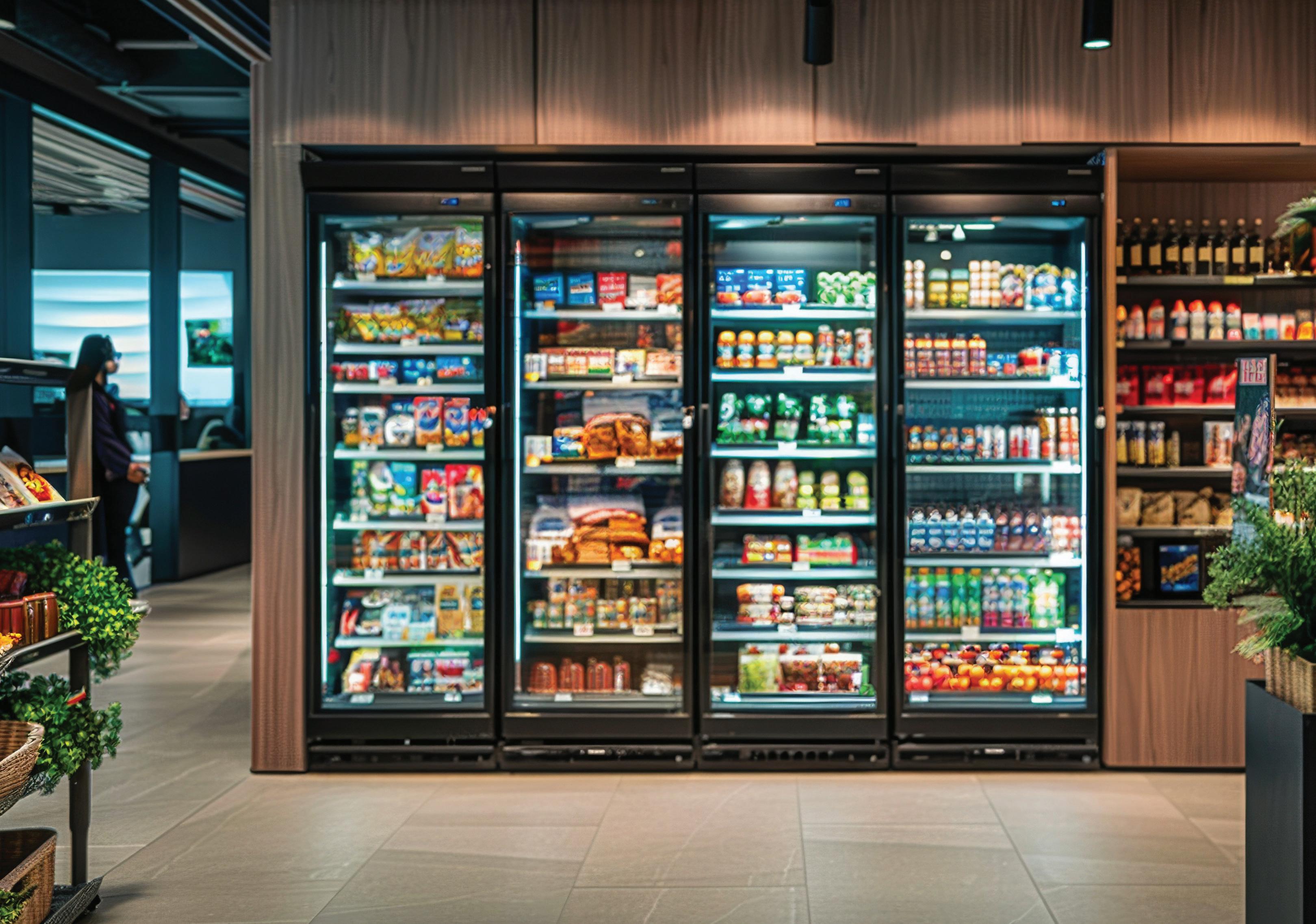

Urban Ethos has sourced and developed eco-conscious products from around the world. Its mission has been to ‘change consumer habits’ by being a market leader in providing products that enhance choices to waste less, be more environmentally conscious, and lead healthier lives.
“We turn waste into food-safe and certified products, of course. We strive for synergy with our environment by pairing innovative materials with thoughtful and elevated design,” said Michael Vidor, CEO of Urban Ethos.
The company’s core principles have been environmentally responsible materials, ethical manufacturing practices, superior design and functionality. All its manufacturing partners are audited annually to meet the highest possible standards and have been certified by BSCI, ISO, or ECOCERT.
Urban Ethos prides itself on being
a category leader and has invested considerable time and resources in developing better product solutions that enhance the consumer experience. However, a significant challenge that it has faced has been the cost. With eco-friendly products, a higher price is often attached to the manufacturing and retail price.
The latest innovation from Urban Ethos has been its Tippy Tea Cups.
“We believe our Tippy Tea Cups will do for tea what coffee pods have done for coffee. Simple, no fuss, no mess.”
Vidor said that the humble tea bag has remained unchanged for decades, and Urban Ethos believed there was a better solution for on-the-go consumers.
“Tea bags can be messy, inconvenient, and, in some instances, unhygienic. We wanted a simple, no-fuss solution that offered consumers a superior experience with high-quality, all-natural tea ingredients
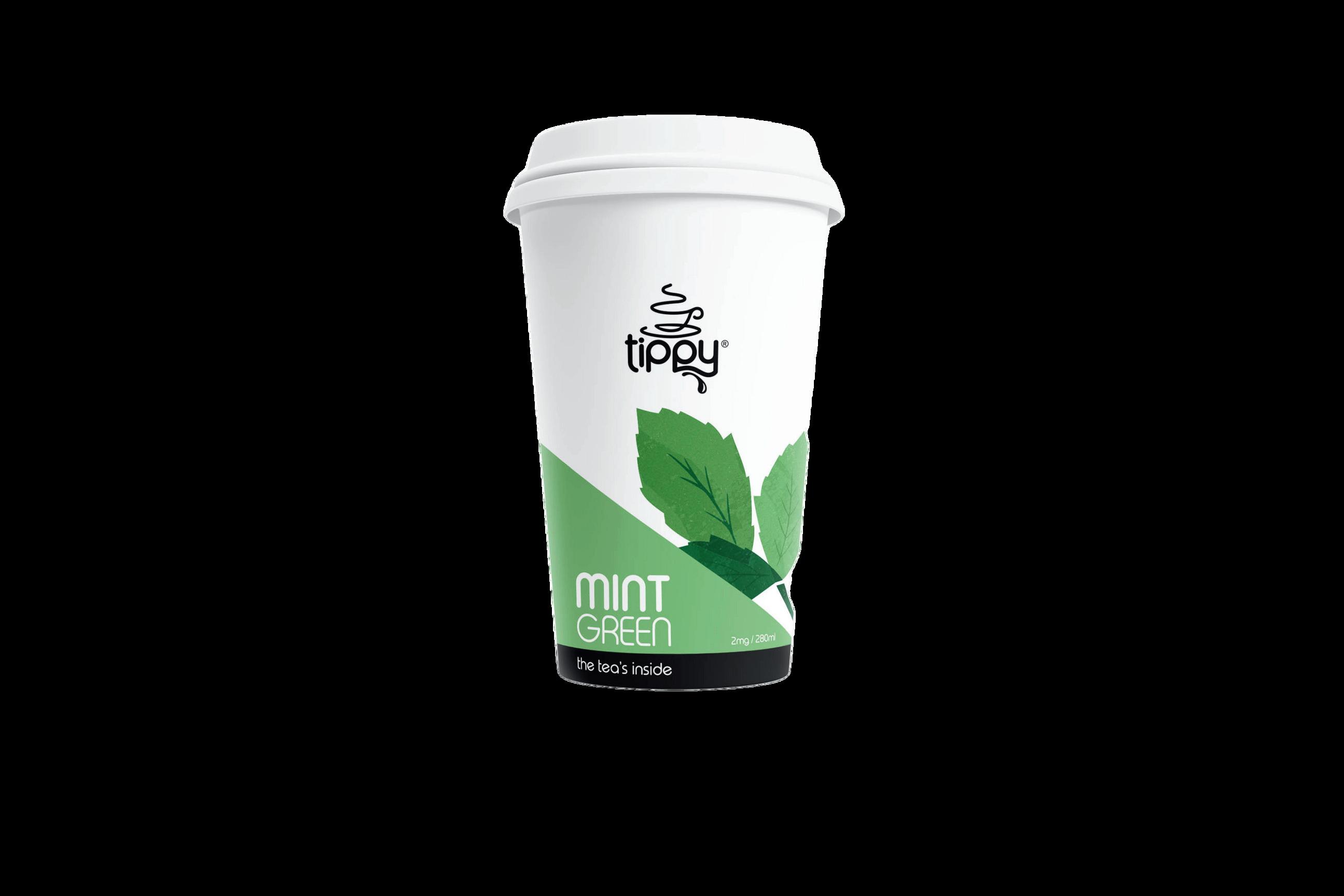

in a simple on-the-go format.”.
Many traditional tea bags contain plastic, which is used to heat seal the filter bag, preventing it from falling apart. This plastic is usually inside the paper filter bags and in the glue used to heat seal the bags, mainly polypropylene.
The Tippy Tea Cups have been made from 100 percent compostable paper and a plant-based filter and lining. The cup lids have been made of 100 percent natural sugarcane. The design is straightforward to use; simply add water and enjoy.
If customers wish to change the strength of the brew, they can fill one-fourth of the cup with hot water, swirl it gently to strengthen the brew, and then top it up with more hot water.
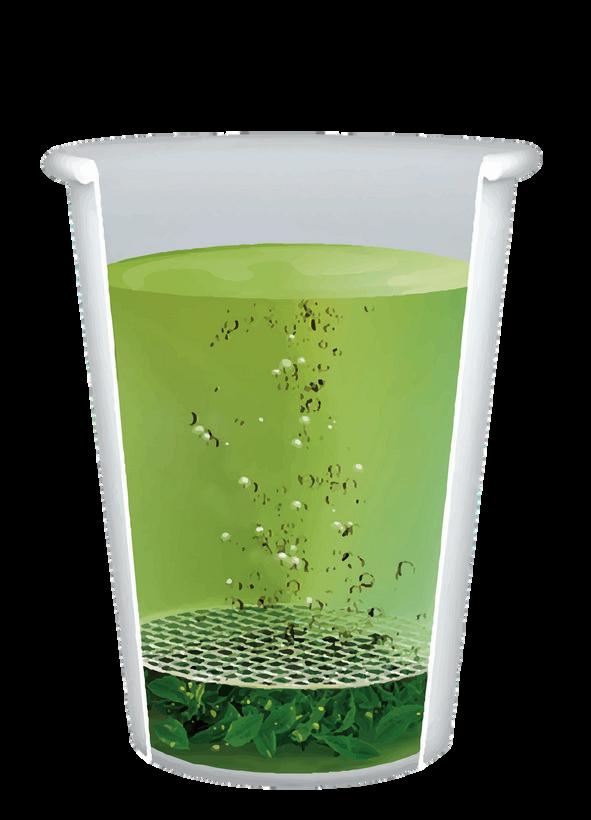




Available in five tea flavours, including English Breakfast, Earl Grey, Lemon Ginger, Mint Green, and Jasmin Green, all made from 100 percent natural ingredients. n just add hot water & enjoy the tea.
Instant brewing cup of premium tea
U p to 3 refills
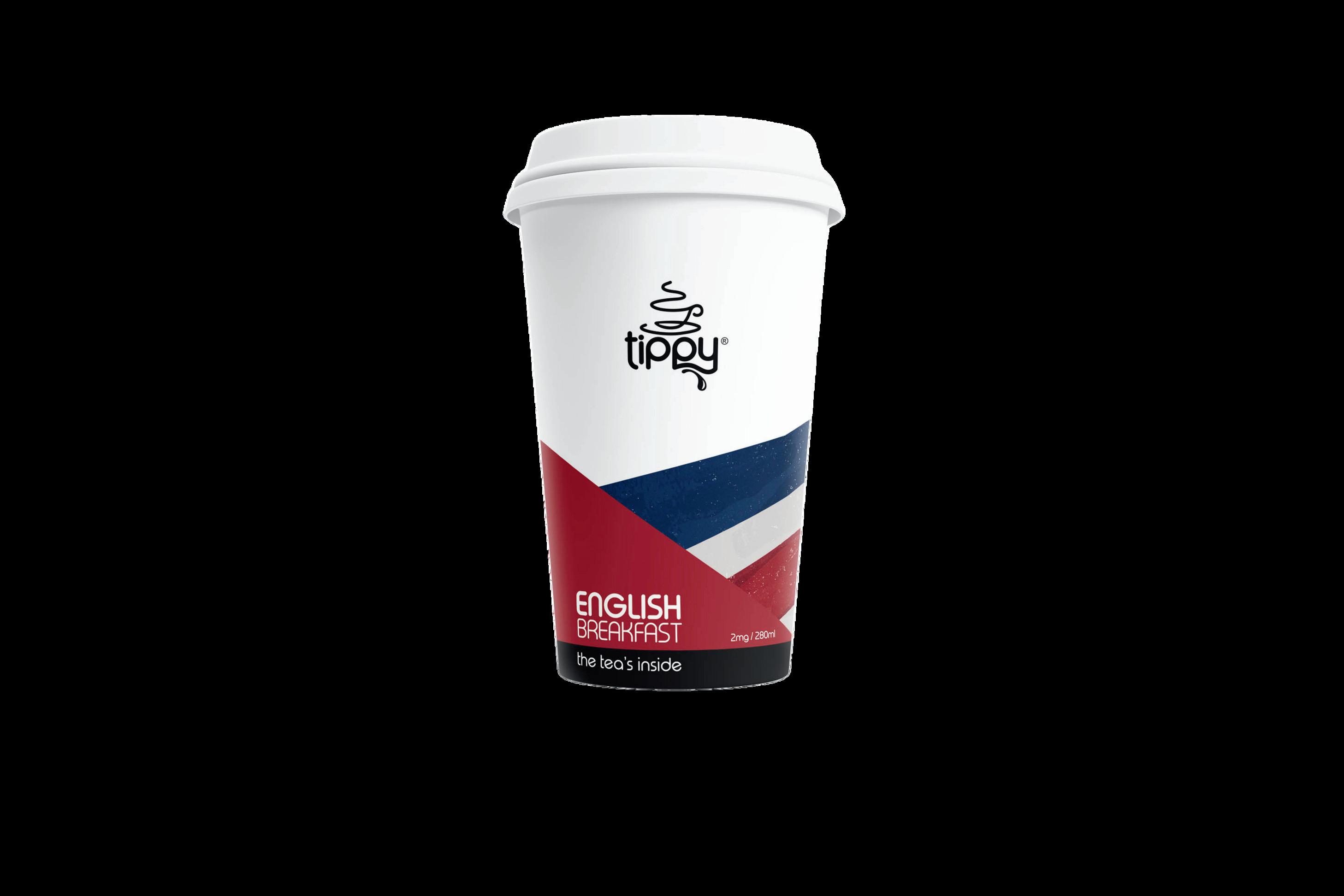
All natural premium quality ingredients sit in the base of the cup

Double-walled heat insulation
Food-grade fibre filter + compostable cardboard
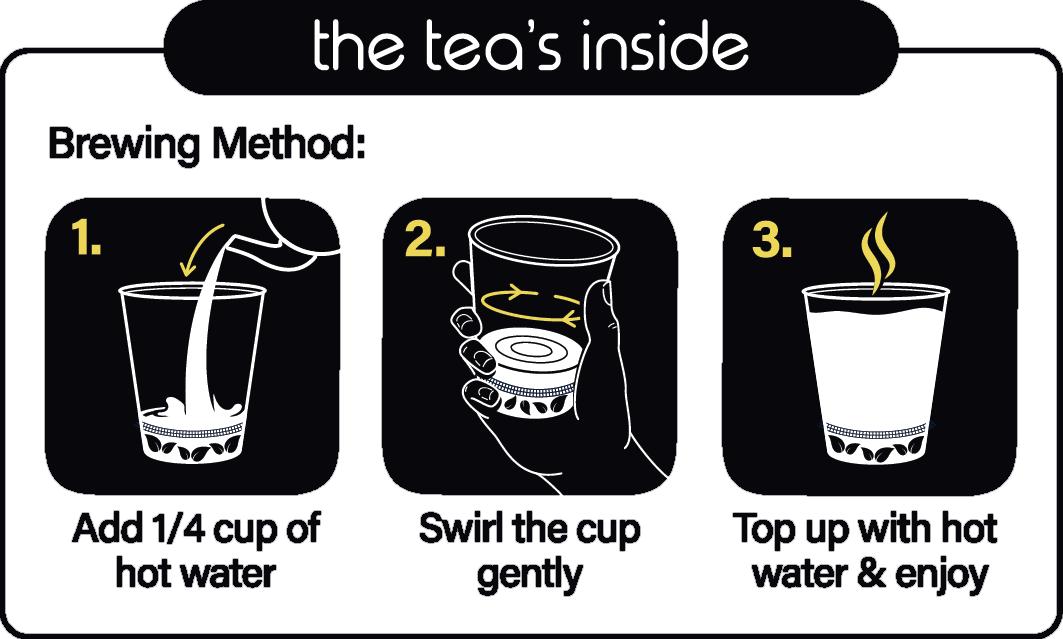


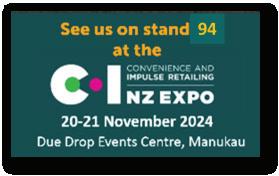
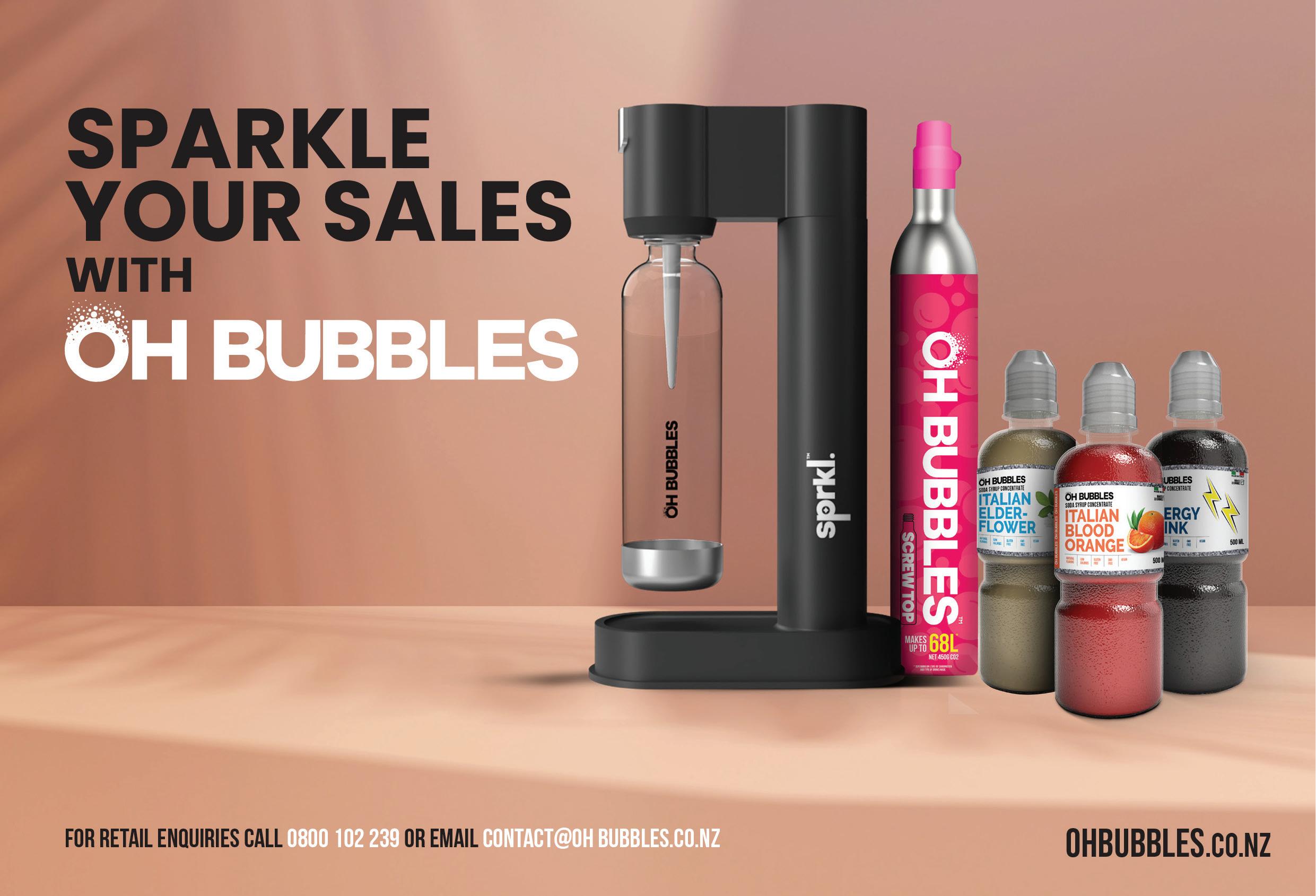
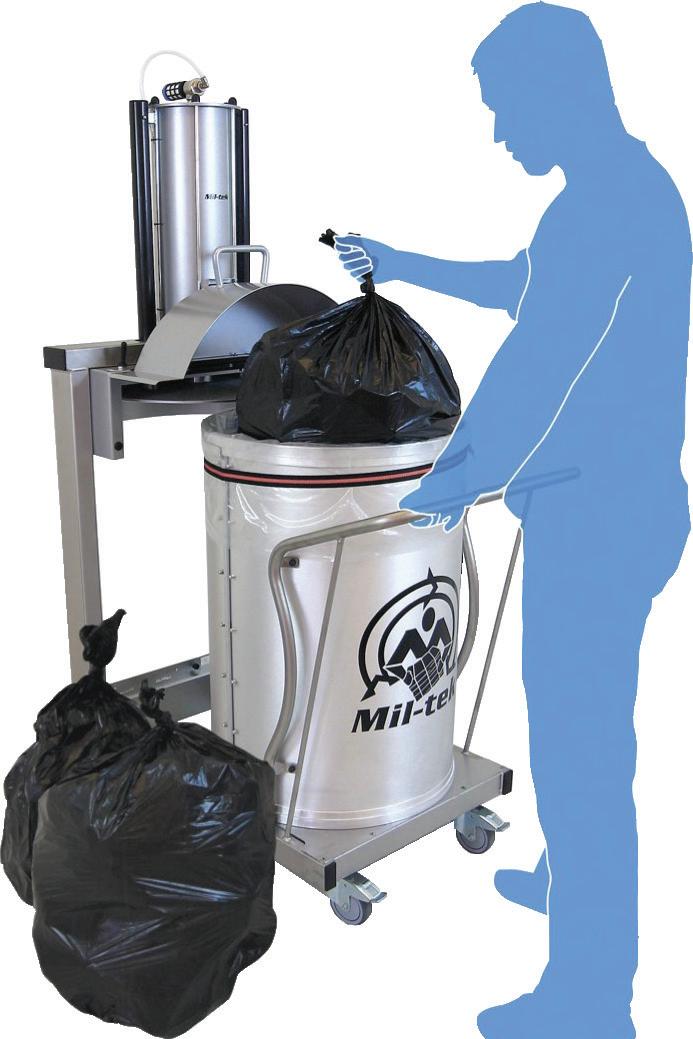

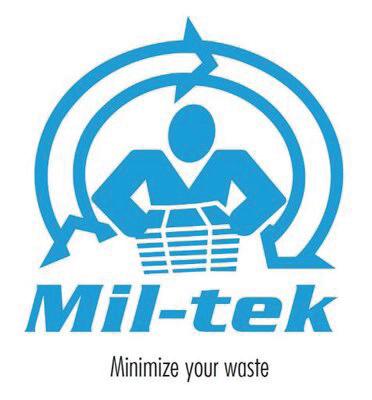


Our vision is to provide healthy, convenient and delicious food to the community! From classic kiwi coleslaw, pasta and potato salad, to crafted salad bowls and scrumptious yoghurt granola pots, you're sure to find something delicious to suit a variety of customers. Find us at Stand 16 at the C&I Expo in November and discuss your needs with our expert team, or give us a call today!
Our vision is to pro hy, convenient and delicious food to th ty! From classic kiwi coleslaw, pasta and potato salad, to crafted salad bowls and scrumptious yoghurt granola pots, you’re sure to find something delicious to suit a variety of customers. Find us at Stand 16 at the C & I Expo in November and discuss your needs with our expert team, or order from Gilmours today! www.freshtogo.co.nz 09 525 7294
www.freshtogo.co.nz 09 525 9808
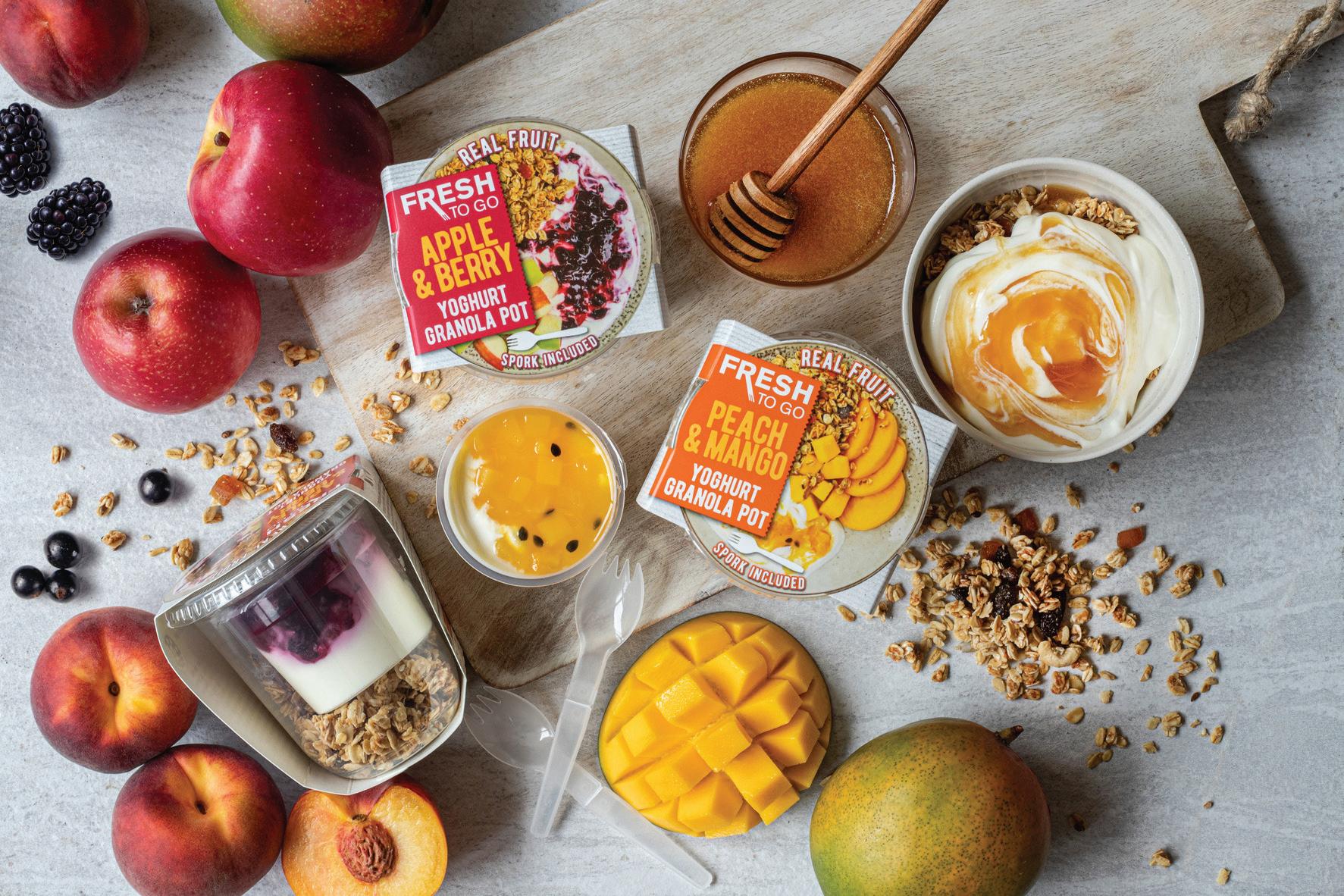
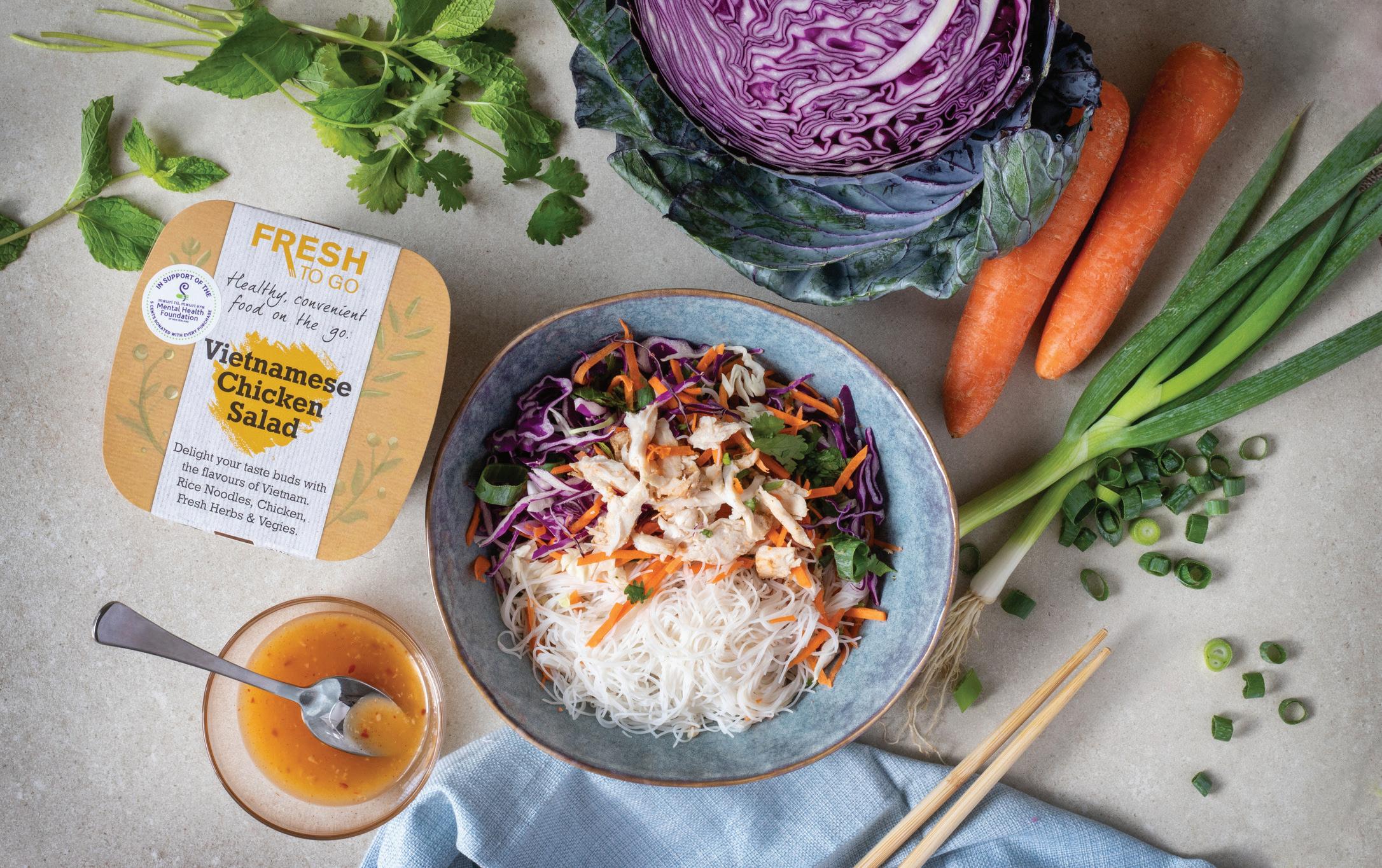

Kiwi coffee brand Zephyr Coffee Co. has partnered with Kākano Youth Arts Collective for their newest artist collaboration, featuring on their coffee bags, in-store point of sale and merchandise.
The Kākano initiative was developed by independent artist Mandy Patmore following a pilot programme established in 2013, recognising the needs of some of West Auckland’s most vulnerable young people, all of whom had struggled with mainstream education.
Since then, it has grown into a hugely successful initiative and has changed the lives of many young people.
Continuing in her role as Creative Director, Patmore has been supported by a team of art tutors and youth support workers, enabling Kākano to run three sessions a week for the rangatahi, working closely with Oranga Tamariki, NZ Police, alternative education providers, youth services and local government.
Under the guidance of these highly experienced tutors, all practising multidisciplinary artists, the rangatahi can develop their art practice, increase their confidence and strengthen their self-worth.
Alongside the studio sessions, Kākano has a strong presence in the wider community, creating murals and artworks for public spaces, allowing the group to develop real, tangible skills that can be applied to multiple pathways in the future.
“We are proud to support this unique and special programme and have been working with their young artists to create a series of designs to showcase over the next 18 months,” said Zephyr.
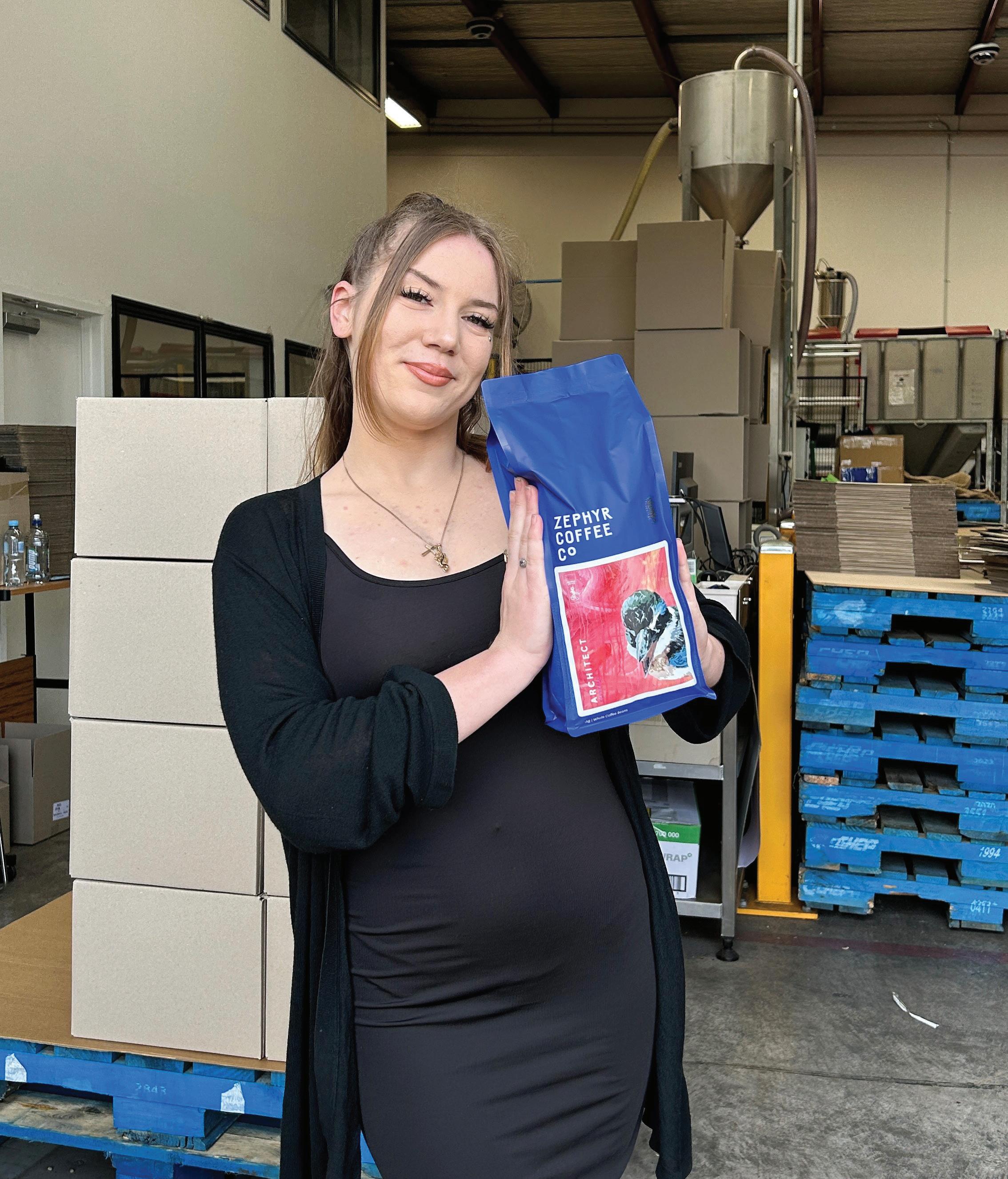
“Our first feature artist, 19-year-old Georgia has been a member of Kākano for five years, and it has been incredible watching her design develop and evolve. Her interpretation draws from the journey of our coffee and the distinct personality of the Zephyr brand. Her approach combines a detailed depiction of a native Kōtare bird with an abstract background.”
She said that the background colours had been chosen to reflect the shades of a coffee cherry, and the Kōtare was inspired by the definition of Zephyr as a gentle breeze, capturing a sense of freedom, courage, and adventure.
The new artwork will be visible across all Zephyr partner outlets. A complete list of Zephyr partner cafes can be found on the website at http://www.zephyrcoffee.co.nz/ stockists. n
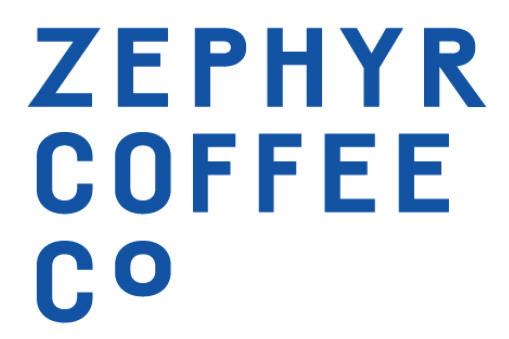
by
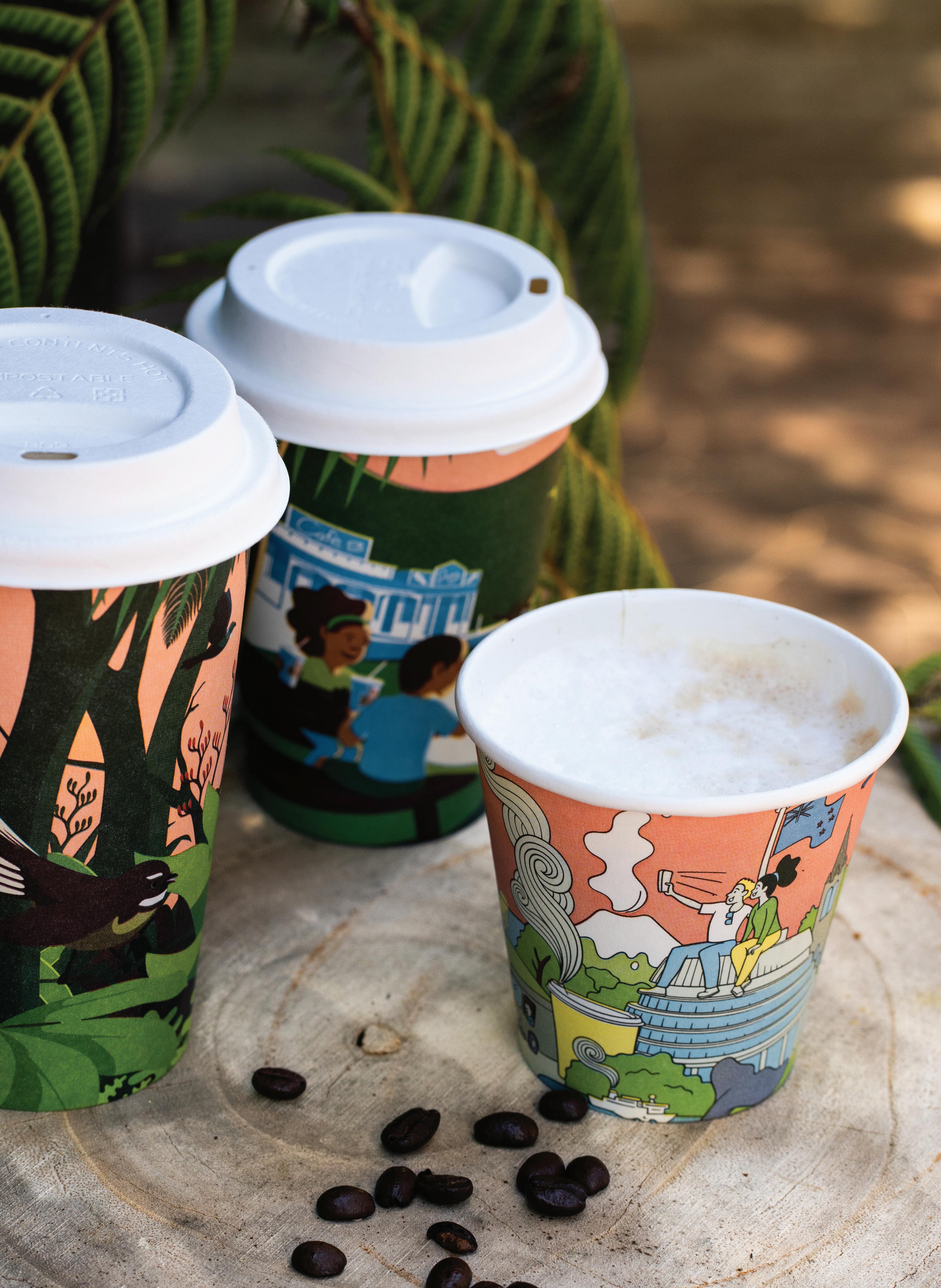

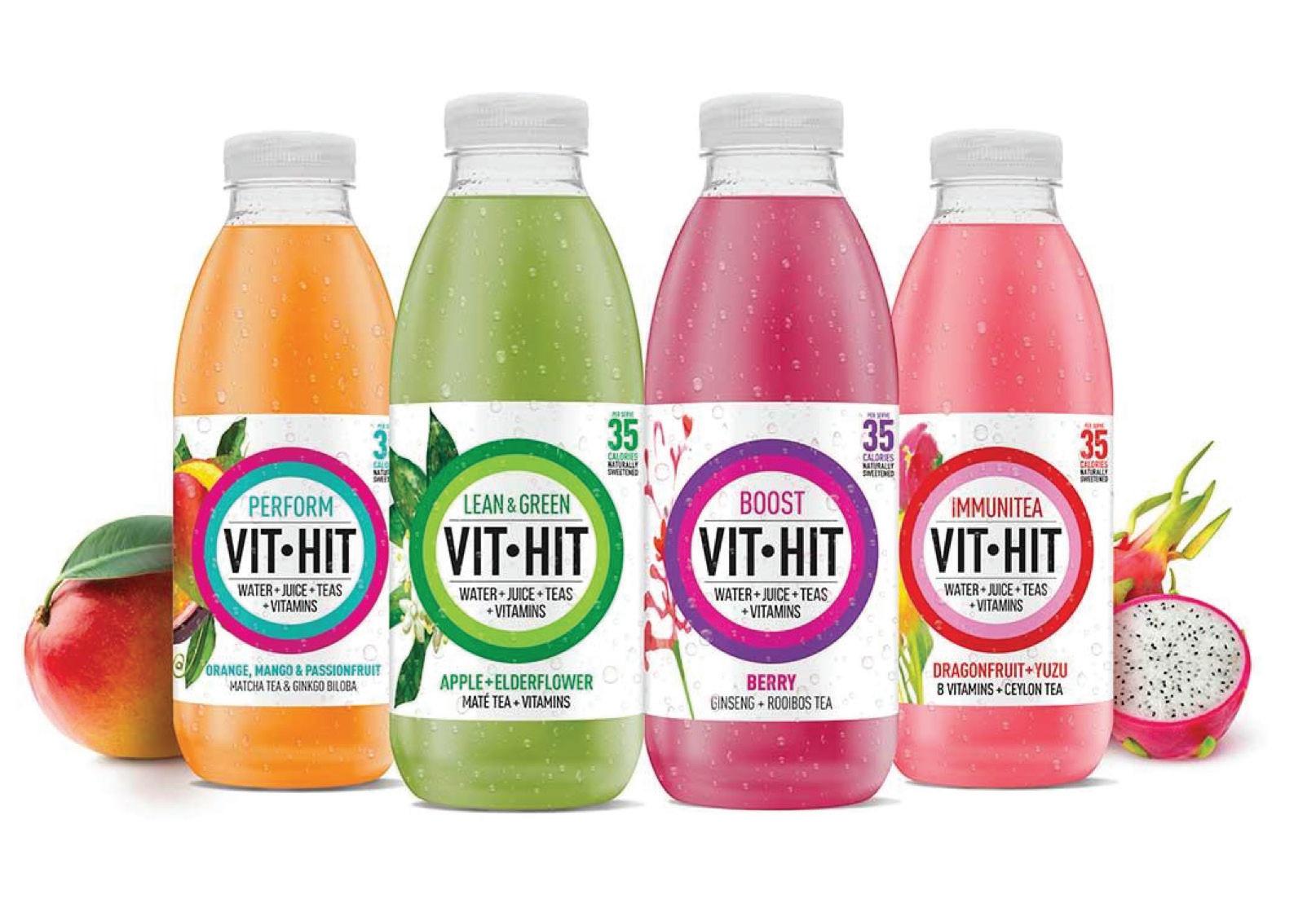
VITHIT is a unique blend of water, juice, tea, and vitamins, making it the ultimate health drink. With less than 35 calories per bottle and ten exotic flavours, VITHIT is the perfect alternative to sugary, calorie-filled drinks. Four new flavours from VITHIT include Perform, Boost, Lean & Green and Immunitea.
Perform is a tropical blend of mango and passionfruit juice with essential amino acids, while the Lean & Green is a mouthwatering blend of apple and elderflower
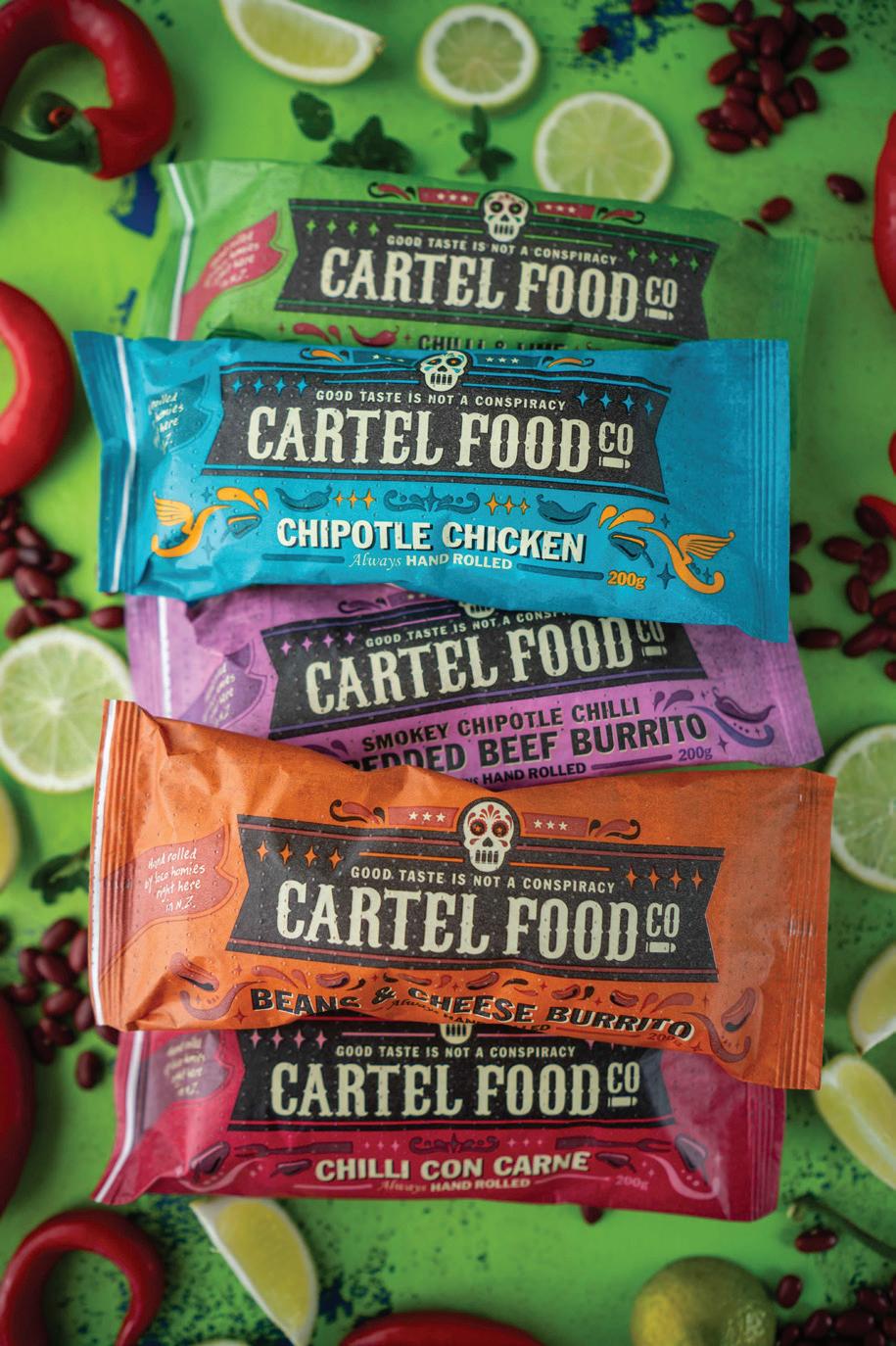
for a fresh, crisp taste combined with an antioxidant hit of Maté Tea.
Boost is a delicious blend of summer berries fused with water and a powerful burst of ginseng and rooibos tea. At the same time, Immunitea is a delicious juice blend of dragonfruit and yuzu combined with health-boosting Ceylon tea. VITHIT was created because of a lack of healthy drinks in fridges today. n
For more information visit www.realfoods.co.nz
For the Cartel Food Company, it has always been about creating great tasting, quality frozen Mexican-inspired products. We believe it is not hard to create good frozen food if you use good ingredients and apply some care.
Consumers confirm that belief when they regularly tell us, “Wow, that actually tastes good.” We think that comment comes from a perception that frozen convenience food lacks taste and quality. Try our range of frozen burritos, with five tasty flavours to choose from and a three-minute freezer-to-plate cook time.
Each burrito is loaded with flavour because our meat and poultry are braised in ingredients like chipotle, jalapeño, lime juice, pinto beans and our secret spices.
They are an ideal option for busy families, students, professionals or anyone needing a quick tasty fix on the move. n
To become a stockist, contact Louise Sheehan orders@cartelfood.com or 021 150 7389.
Since 1968, the iconic blue and red giraffe image has appeared on the side of the cups used by dairies, ice cream parlours, cafes and takeaways for milkshakes and thickshakes. Nearly every Kiwi will have had a shake in one of these cups and the sight of one will bring back memories of walking home from the local pool on a hot summer’s day, Friday fish and chips wrapped in paper or holidaying at the beach with family. Each memory triggered by the thought of slurping down a cold shake.
Today The Longest Drink In Town remains New Zealand’s favourite milkshake and Kiwis of all ages still love popping down to the local shop and getting a cold shake with their own favourite flavour. These flavours have been made for the last ten years by Delmaine Fine Foods, one of New Zealand’s leading food manufacturers, through high quality milkshake syrups under the Longest Drink in Town brand.
This summer make sure you take advantage of the country’s love for milkshakes and the brand that brings back so many memories, by having a good supply of The Longest Drink In Town cups and syrups. n
Contact Delmaine Fine Foods on 0800 335 624 or speak with your local representative.
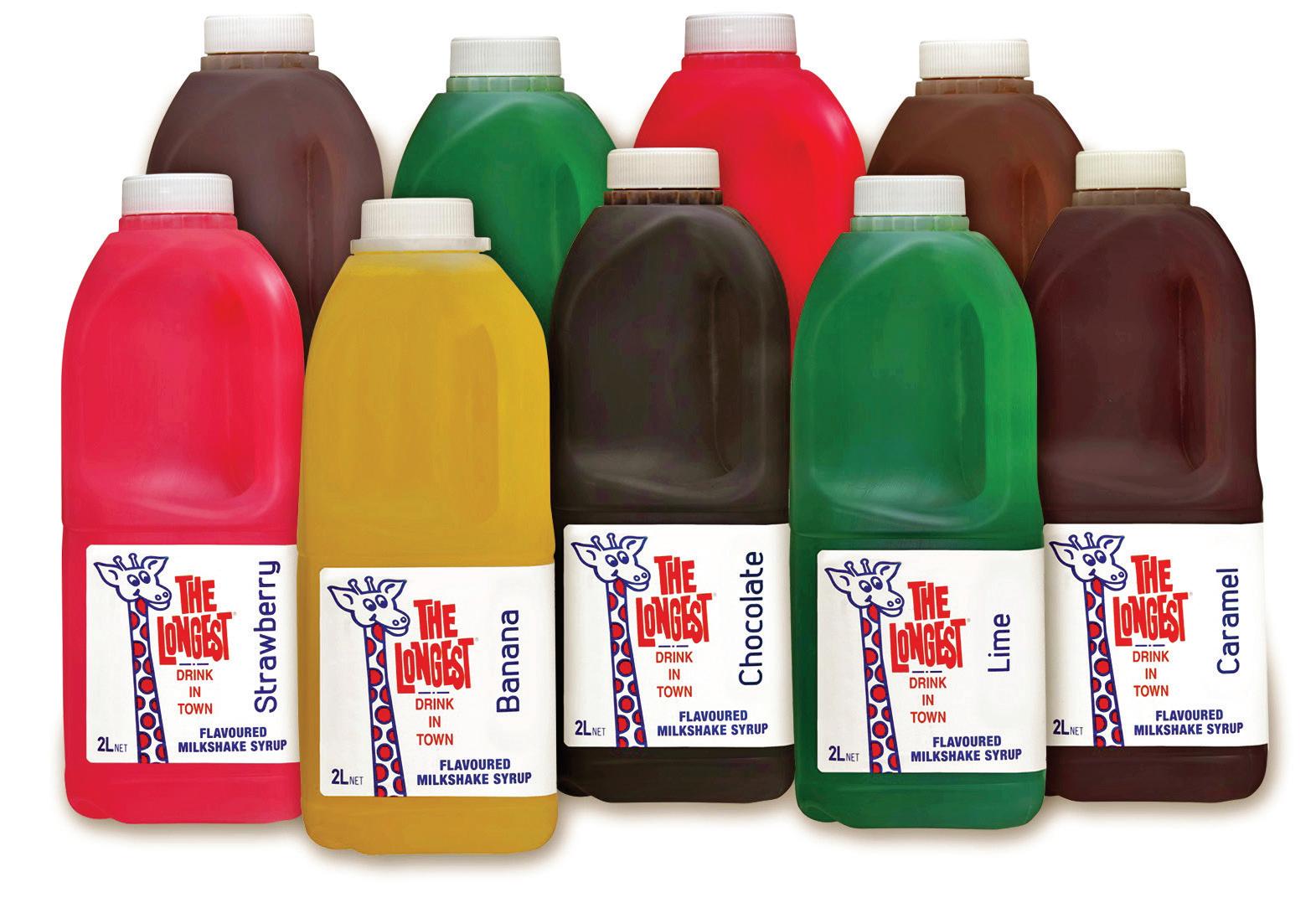






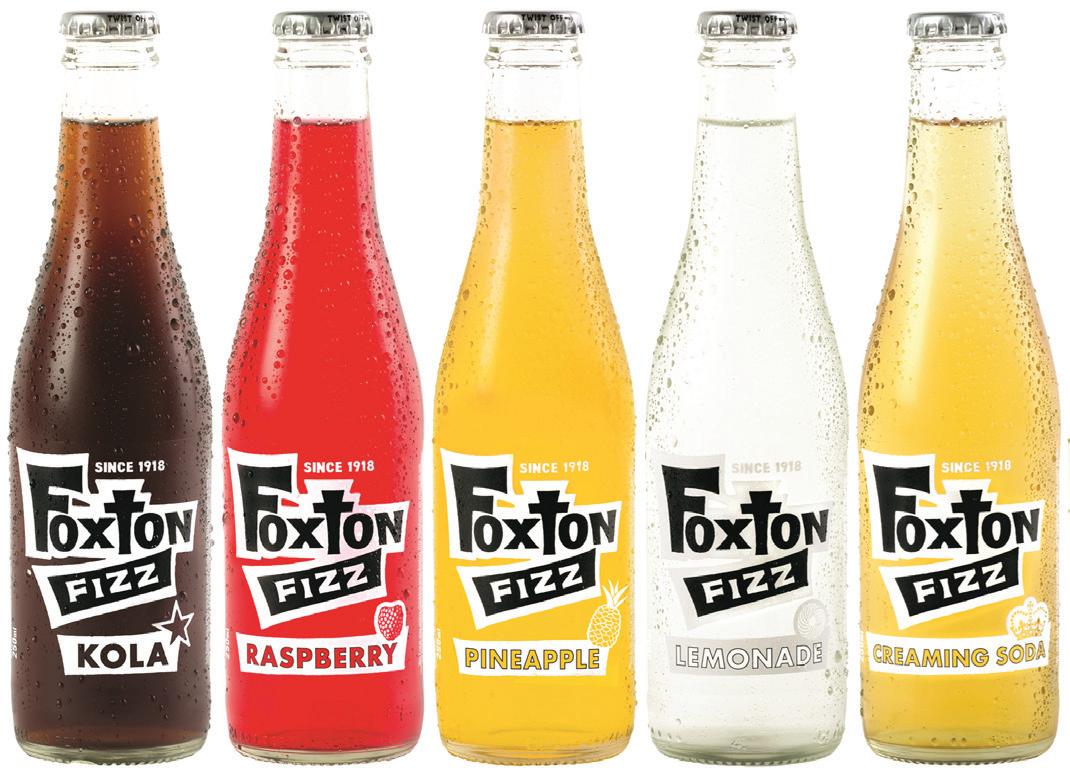
oxton Fizz has been increasing distribution in the last 12 months, adding to the 104 year old brands’ footprint in the grocery and convenience channels. In addition to increased distribution, they’ve been working on their NPD and have recently re-introduced Foxton Fizz Pineapple in the 250ml bottle. Pineapple is an old favourite, last bottled around 2004, meaning the 20 year hiatus is over. The new Pineapple flavour is not the only new retail product – the Foxton Fizz Sampler Pack, consisting of 2 bottles of each of the 6 flavours, is now
available as a retail pack and is proving to be very popular as a take home pack or gift. The small town soda brands, of which there used to be over 200, were strongly associated with family gatherings and holidays such as Christmas and Easter, and it seems this continues. n
Foxton Fizz is supplied o the grocery channel by DKSH New Zealand. Phone +64 6 356 5323, Email: customerservice.nz@dksh.com
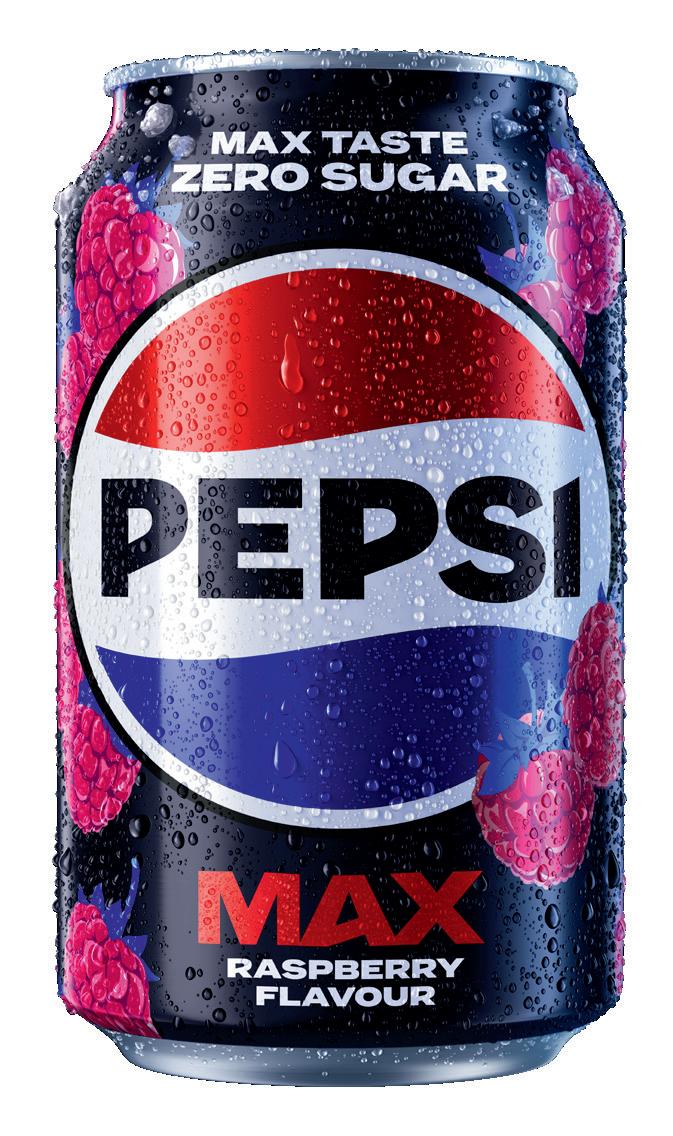
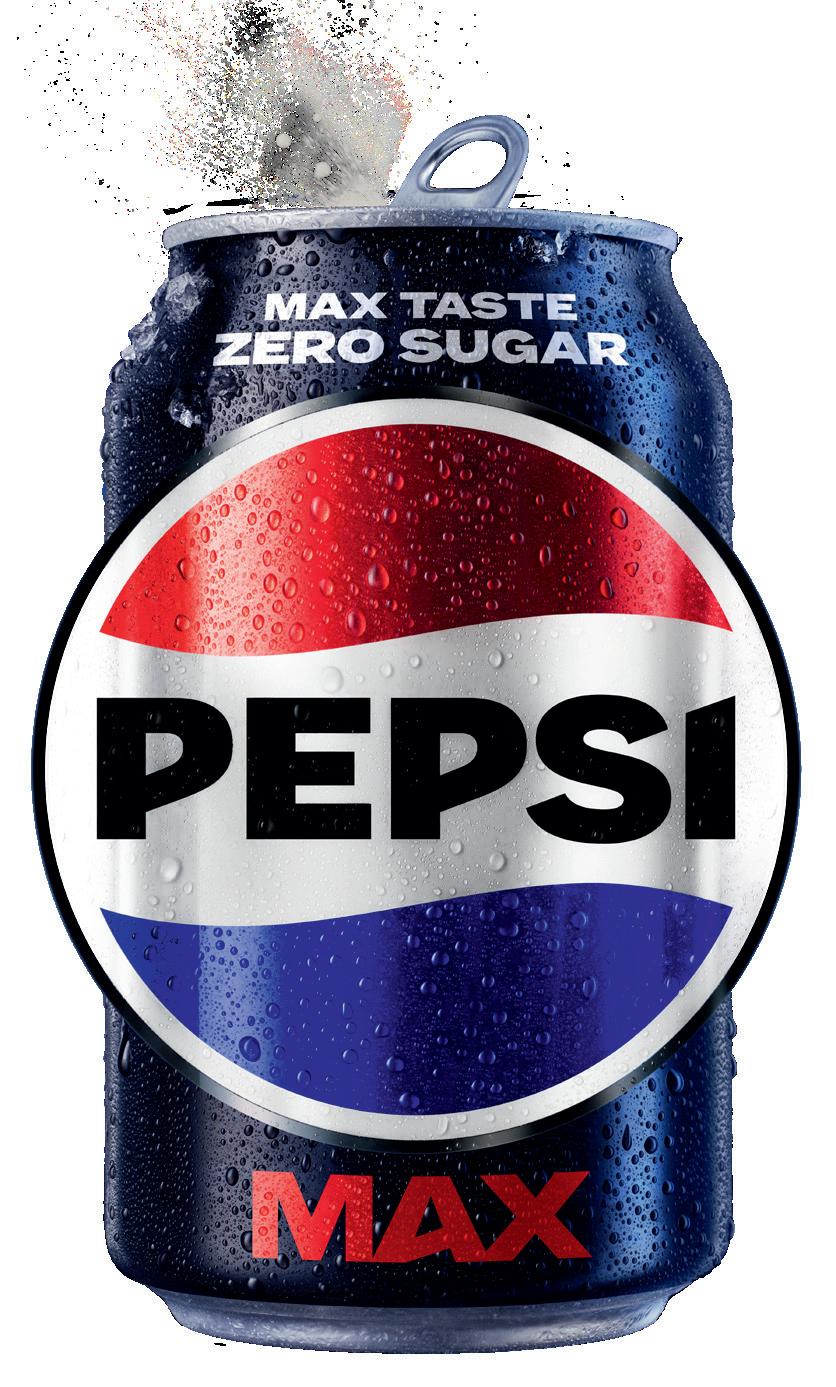
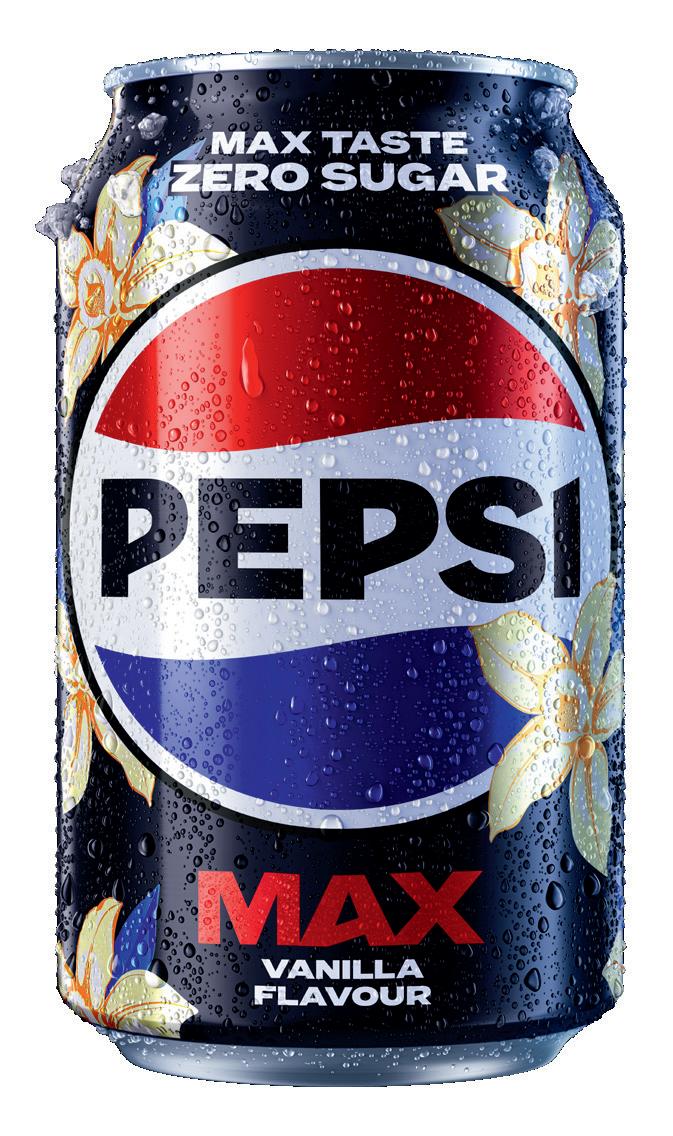
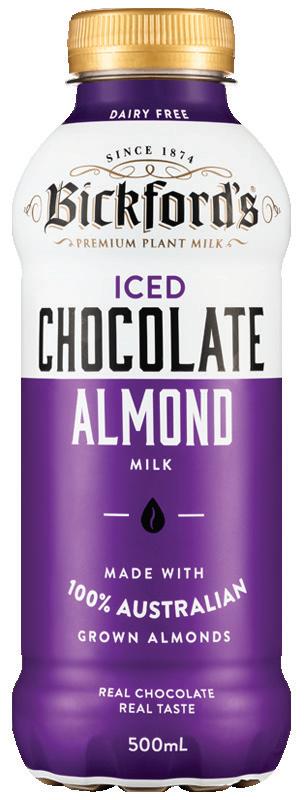
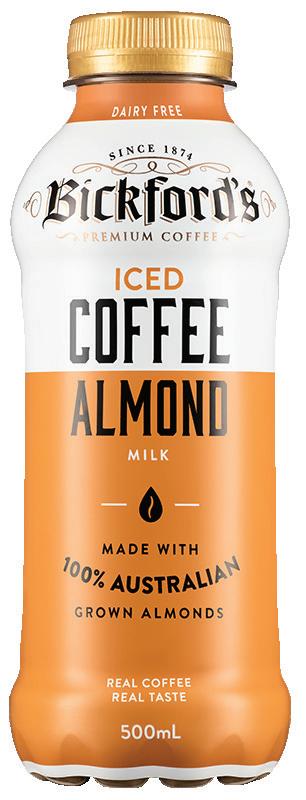
Attention Service Station & Convenience Store Owners! Need an alternative option for your customers craving a coffee or chocolate hit without the dairy? Bickford’s has been crafting irresistible beverages for over 100 years. Made with 100% Australian almonds, our RTD range offers a smooth, creamy texture and a bold hit of coffee or chocolate.
• Dairy-free
• Vegan-friendly
• Gluten-free
• GMO-free
• Free from artificial colours and flavours
Available in two delicious flavours: Iced Coffee Almond and Iced Chocolate Almond. Give your customers a delicious, dairy-free alternative! Available through selected Mobil and On The Spot stores nationally. n
Contact chris.bhimy@bickfordsgroup.com to order now.
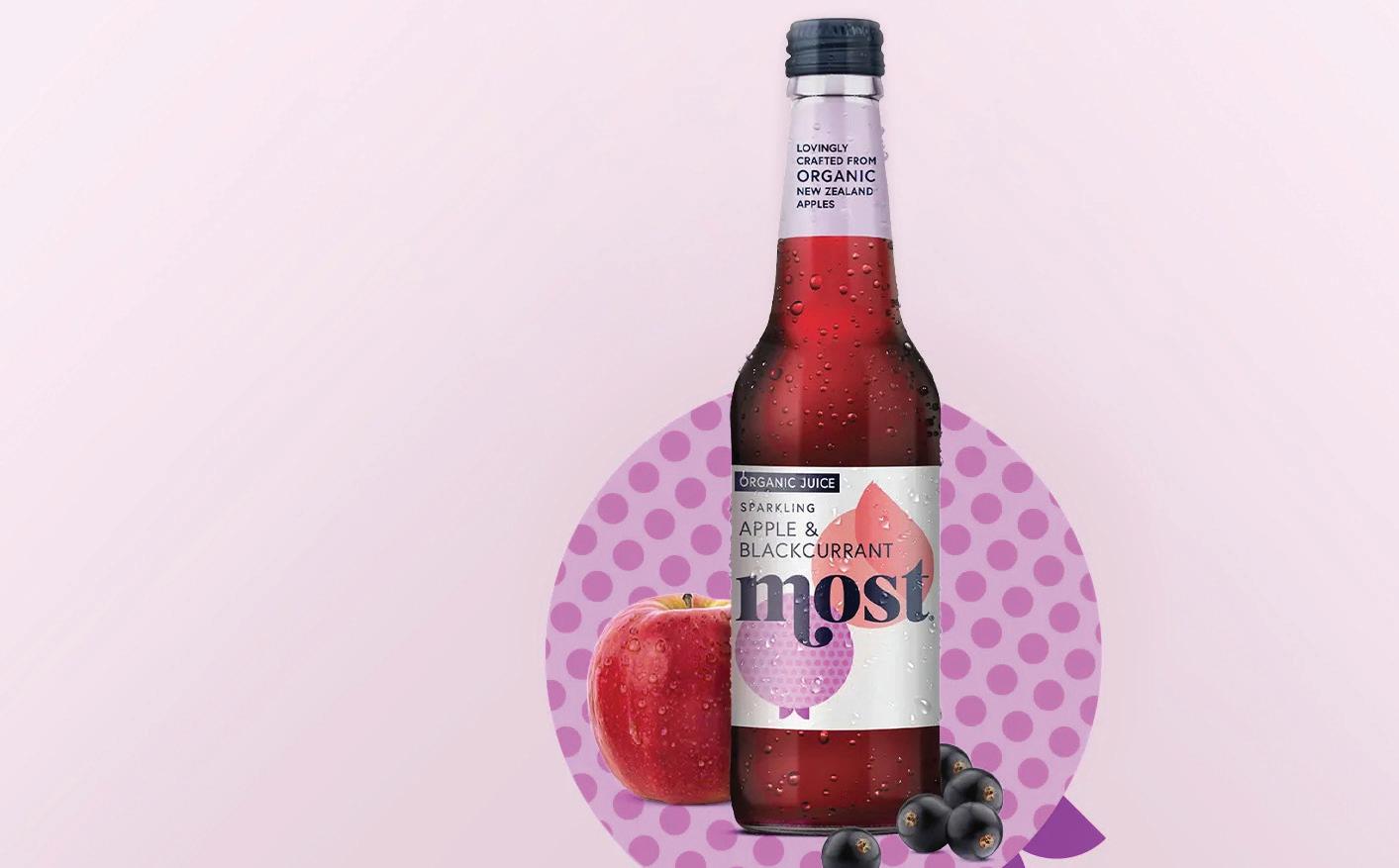
MOST Juice is celebrating 10 years of delivering organic juiciness in every drop to New Zealanders. Crafted with love from New Zealand apples, MOST stands out with its BioGro New Zealand organic certification, offering both still and sparkling options. With no added sugar, preservatives, and artificial flavours or colours, MOST delivers a refreshingly pure taste that reflects our commitment to organic excellence. For MOST, the phrase ‘you only get out what you put in’ rings true. Every bottle of MOST Juice embodies their dedication to simple, high-quality ingredients and their unwavering belief in the best intentions. Here’s to another 10 years of bringing the pure taste of certified organic juice to your glass!
For more information, contact your local Coca-Cola Europacific Partners New Zealand representative or call 0800 505 123





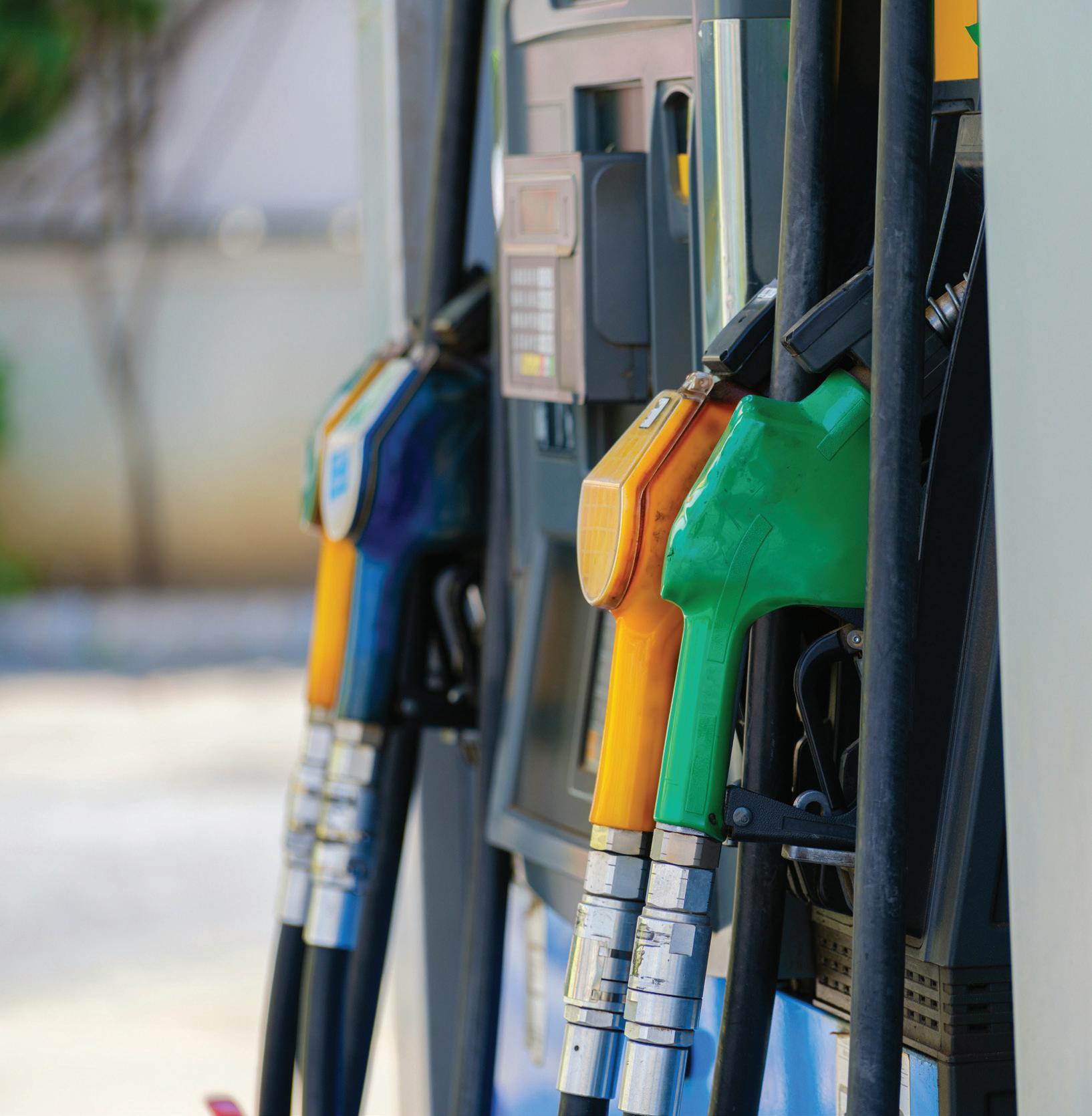
Associate Energy Minister Shane Jones said New Zealand’s fuel resilience is being strengthened to ensure people and goods keep moving and connected to the world in case of disruptions.
Fuel security has been a priority for the Coalition Government, who were acutely aware of how essential engine fuels were to the New Zealand economy and how a fuel disruption would impact New Zealanders.
New Zealand imports nearly all its engine fuels, making it particularly vulnerable to international and domestic supply disruptions. Ensuring enough reserve stocks have been held in the right place would help reduce possible disruptions and is a crucial pillar of fuel security.
“The previous government introduced a minimum stockholding obligation, which means from the 1st of January 2025, fuel importers will be required to hold 28 days’ cover for petrol, 24 days for jet fuel and 21
days for diesel,” said Jones.
“Importantly, the minimum stockholding obligation regulations introduce a new information disclosure rule which gives the government a clearer oversight over how much fuel is held in New Zealand.”
However, Jones was not satisfied that 21 days’ cover for diesel was enough or that the jet fuel stockholding rule was sufficient to avoid disruptions to international aviation such as those experienced in 2017.
He said that diesel was the most essential fuel as it kept food and people moving through our country. Without it, New Zealanders would struggle to access everything they need.
“We need to hold enough diesel onshore to keep essential goods moving through the country and vital services running, even if fuel supply chains have been disrupted. For this reason, I am seeking feedback on increasing diesel reserves to 28 days’ stock to help reduce any potential impact of a
disruption to supply.”
Jones was also concerned about the security of the jet fuel supply at Auckland Airport. In September, he informed the fuel companies that own the airport's jet fuel infrastructure of his plan to seek Cabinet agreement on regulations that would mandate sufficient jet fuel to be held near Auckland Airport.
Auckland Airport has been New Zealand’s gateway to the world. Seventy-five per cent of all international seat capacity goes into New Zealand, and 90 per cent of all longhaul flights come into Auckland.
New Zealand learned the hard way in 2017 when the jet fuel supply was disrupted, forcing planes to be diverted and reducing the country’s connection with the world. Further issues with jet fuel quality in 2022 reinforced the need for action.
“Despite the 2019 government inquiry into the 2017 Auckland Fuel Supply Disruption recommending that jet fuel companies urgently increase their jet fuel holdings near Auckland airport, little progress has been made.”
He added that establishing a locationspecific jet fuel stockholding requirement would ensure the jet fuel companies acted to ensure enough fuel was on hand to ride out any disruption to supply.
“Along with reversing the ban on oil and gas exploration, these actions will further strengthen New Zealand’s resilience and self-determination to ensure disruptions to our energy supply do not halt the economy.”
The Government has sought public feedback on options for increasing New Zealand’s diesel reserves. The consultation will close on the 6th of December. n

Chargefox has announced the full integration of its charging services with new Mercedes Benz electric vehicles through Mercedes Me Charge.
This innovation has marked an Australian first. It has enabled Mercedes EV drivers to find, charge, and pay for charging services directly through the Mercedes Me app and their vehicle's infotainment system.
Drivers of select Mercedes Benz electric vehicles now have seamless access to over 2,700 charging plugs nationwide.
“This integration with Mercedes demonstrates how finding, using and paying for charging can be ‘baked-in’ to the vehicle so that car makers can own and optimise the experience, and drivers don’t need a separate app or device,” said Craig Norris, Head of Channel Partnerships at Chargefox.
Mercedes Benz has been a critical player in the Australian EV market for years, offering free Chargefox charging subscriptions with several models. The extensive number of public chargers available on Chargefox across
every state and territory has given EV owners the confidence to travel long distances.
This latest integration has taken convenience to the next level, allowing drivers to find, navigate, use, and pay at their nearest charging station directly from their car or via the Mercedes-Me app.
"This is a world first. This is the first time anywhere that Mercedes drivers can use their charging subscription to pay for charging directly from their vehicle or Mercedes app,” said Nick Wodzinski, Head of Product at Chargefox.
Chargefox has become the exclusive provider of this service to Mercedes in Australia. It has joined over 1,300 providers offering over 1.5 million charging points to Mercedes drivers globally through Mercedes me Charge.
Chargefox has remained dedicated to revolutionising EV charging in Australia, making it simple, affordable, and accessible. Its commitment to innovation and the vast charging station network drive the transition to clean transportation. n
Independent Dutch retailer Paul Toepoel opened the new SPAR Supermarket in Diemen Zuid.
Located at Holland Park in Diemen Zuid, a residential area with many families and urban professionals, this has been an evolving area of a longstanding district.
Paul Toepoel, the independent retailer of the SPAR Supermarket Diemen Zuid, previously managed the store in Warmoesstraat, in the centre of Amsterdam.
This entrepreneurship underpinned the spirit of the SPAR brand and the importance of independent retailing as part of the SPAR retail network. The new store team is comprised of experienced employees from a store that had been closing and recruiting.
In-store, the offering has been tailored to the convenience for which SPAR Netherlands is known, including installing a SPAR FoodClub. Customers can get freshly made salads, sandwiches, pasta,
pizzas, Tosti Club sandwiches, barista coffee, and in-store bakery.
Residents of the nearby area can also source daily grocery essentials. This includes a selection of fresh fruit and vegetables and food items ranging from cooking ingredients to snacks and drinks to frozen products. A range of household and personal care items are also available.
Digital innovations integrated during the store fit-out include media screens at several strategic locations, while self-checkouts streamline the shopping experience. The overall ambience has aimed to provide customers with a pleasant and convenient shopping experience.
The Dutch wholesaler Adriaan van Well founded the SPAR brand in the Netherlands in 1932. It was established as a voluntary chain of grocers under the name DESPAR –an acronym of a slogan created by van Well to describe the organisation: Door Eendrachtig Samenwerken Profiteren Allen Regelmatig. n
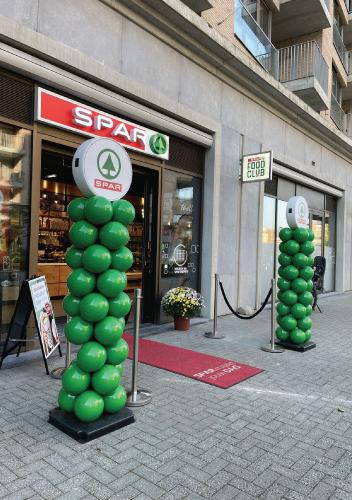




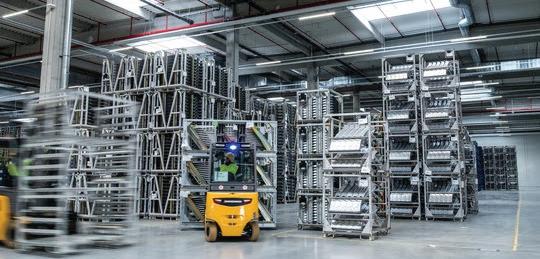
• Comprehensive logistics solutions for Volkswagen Slovakia extended until 2029
• DHL strengthens its role as key logistics partner in automotive manufacturing
Bratislava, September 30, 2024:
DHL Supply Chain, the world's leading provider of contract logistics services, is pleased to announce the extension of its longstanding partnership with Volkswagen Slovakia. The collaboration, which began in 2010, was contractually agreed for the next five years after a successful selection process. DHL Supply Chain's thus strengthens its position as a key logistics partner to the automotive industry. Under the new agreement, DHL Supply Chain Slovakia will continue to provide
intra-company logistics services for the Volkswagen Slovakia plant in Bratislava, including supplying production lines at the plant. Leveraging extensive experience in automotive logistics, DHL Supply Chain will support the production facility in maintaining the highest production standards.
The Volkswagen Slovakia plant in Bratislava, spanning an area of more than two square kilometers, produces eight models under four different Volkswagen Group brands. DHL Supply Chain provides comprehensive internal logistics solutions for the plant, including freight management, receipt of production materials and material handling, packaging management, and the delivery of components at the right time and in the right quantity based on individual production cycle cadence. With over 2,400 employees on site, DHL’s logistics experts ensure a smooth process, making an important contribution to production efficiency.
"The extension of our partnership is confirmation of the reliability and quality of the services we provide," says Peter Benda, Business Unit Director at DHL Supply Chain Slovakia. "Our role is to understand the needs and requirements of our partner and work together to develop optimal logistics solutions and innovations, which include automation and digitalization. We are delighted to continue supporting Volkswagen Slovakia with our expertise in intra-company logistics and look forward to further successful collaboration."
"In these extremely challenging times, when we face global supply chain shortages, having a reliable and flexible logistics partner is more important than ever. I believe that together we will be able to overcome all current and future challenges," says Juraj Mráz, Head of Logistics at Volkswagen Slovakia.
The partnership in Slovakia is just one part of a broader cooperation between DHL Supply Chain and Volkswagen in various markets, making DHL Supply Chain one of the key logistics partners to the automotive industry. n
Waitrose has partnered with Just Eat, the UK’s biggest delivery network, on a multi-year deal to expand its presence in the on-demand grocery and convenience sectors.
Millions of Just Eat customers in the coming weeks can order their favourite food and drink delivered in 30 minutes or less from 229 Waitrose locations across the UK. The partnership went live this week in Birmingham, Glasgow, London, and Manchester.
Waitrose's average weekly on-demand grocery sales increased by 140 percent in the first six months of the year, helping the retailer reach a broader range of customers.
More than one million Brits regularly get their groceries delivered by Just Eat, with the platform delivering 12 grocery orders to UK customers’ doors every minute last year alone.
“Partnering with Just Eat and stepping up our plans for new shops allows us to reach even more customers who want the same commitment to quality, taste and ethical standards whenever and wherever they want
to enjoy great food,” said Waitrose Executive Director James Bailey.
“As demand for greater convenience has grown, so have expectations of convenience food - which is a huge opportunity for us.”
Just Eat customers can order from thousands of items, including the revamped premium range Waitrose No. 1 and Essential Waitrose.
In addition, Waitrose Duchy Organic, fresh ready meals, free-from and vegan ranges, British brands like Gail’s Bakery and Deliciously Ella, plus award-winning wines, beers and spirits, will all be available. Later this year, customers can choose from more than 550 Waitrose Christmas products, including 175 new festive treats for 2024.
Waitrose recently confirmed plans to open up to 100 convenience shops across the UK in the next five years. This will add to the more than 90 Shell forecourt shops it supplies and a franchise agreement for shops in 27 Welcome Break motorway service areas.
“Many of today’s consumers no longer consider speed a luxury but a necessity. This is supported by Just Eats’ research - three in
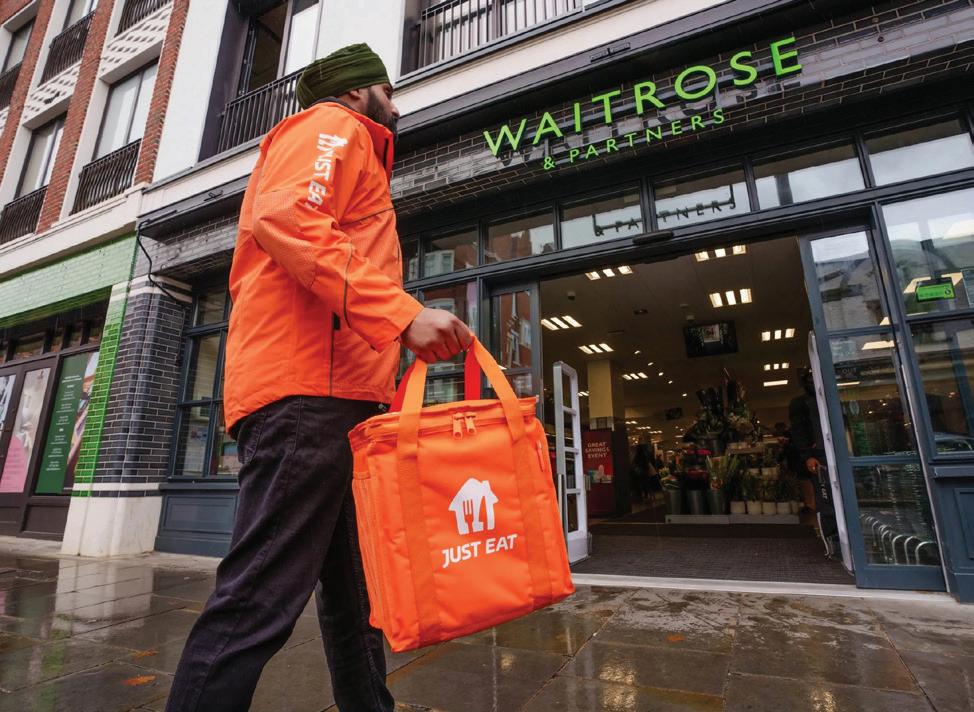
four people who have ordered on-demand groceries believe it will become a part of their daily lives,” said Claire Pointon, Managing Director for the UK and Ireland at Just Eat.
“Just Eat is proud to be leading this change, and so we’re thrilled to be adding Waitrose to our list of grocery partners, strengthening the choice and value available for customers on the platform - whenever and wherever they need us.”
The news followed Just Eat’s recent exciting partnership announcements in the UK and globally, including Boots, Cardfactory, Lovehoney and HelloFresh, demonstrating consumer appetite for convenience for various products and moments. n
FamilyMart Co., Ltd. has focused on expanding the sales floor space of its stores by opening satellite stores, such as unmanned payment stores, to meet the diversifying needs of its customers.
As part of this effort, FamilyMart will gradually convert the eat-in areas installed in stores into sales floors and, in the future, will proceed with converting them into sales floors that handle products and service-related materials, leading to improved convenience through an expanded product lineup.
The FamilyMart convenience store business has been installing eat-in areas since 2013 to create comfortable store spaces. Approximately 7,000 stores currently have eat-in areas.
However, since the outbreak of COVID-19, the ways in which customers have used convenience stores have diversified, and the business has also seen changes in the use of eat-in areas.
The business has promoted the creation of eat-in sales areas to effectively use in-store space, improve customer convenience, and provide a wide range of products to meet
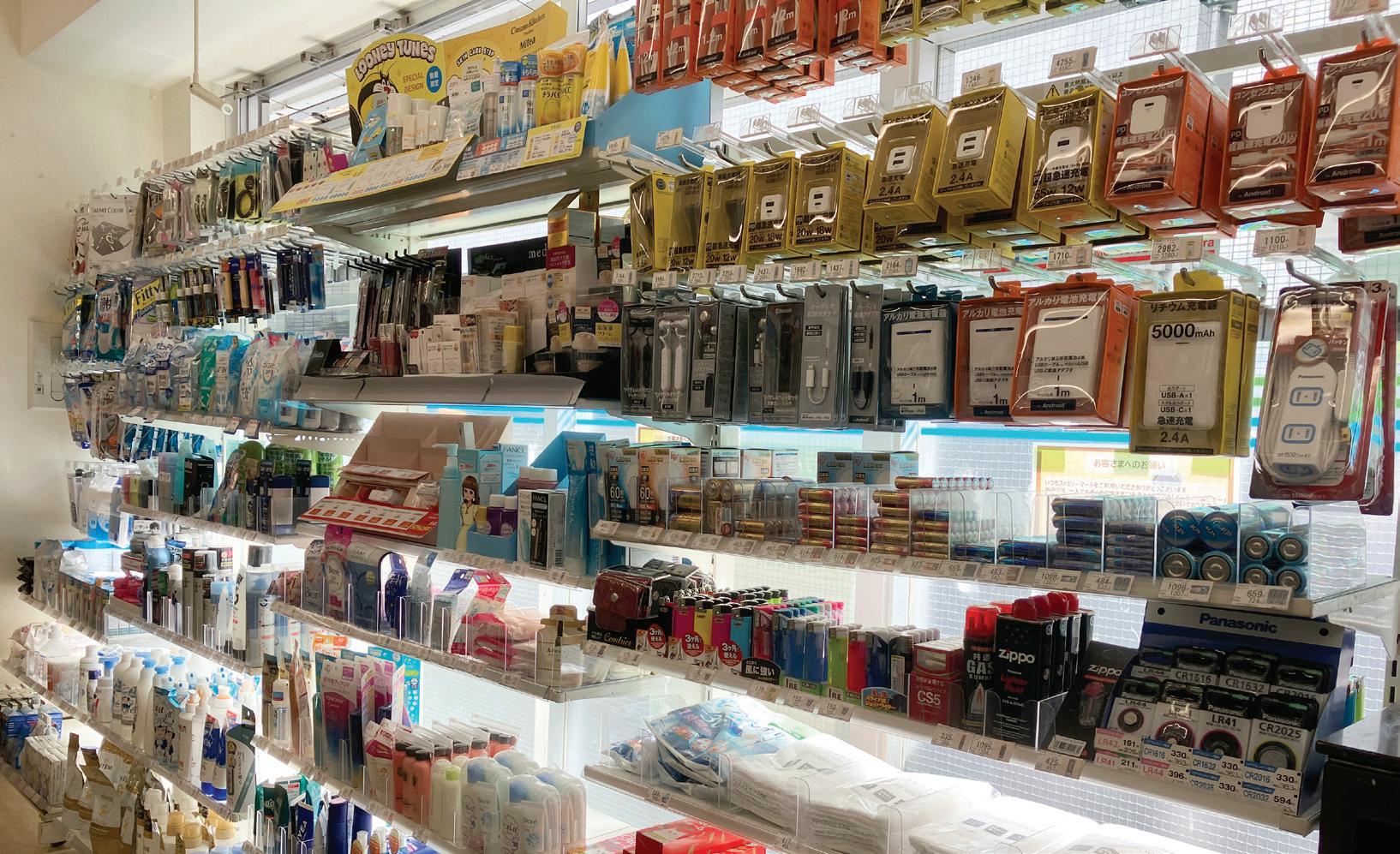
diversifying needs.
It will strive to make the store even more useful for everyday shopping by expanding its product lineup. It will also focus on clothing such as "convenience wear," for which demand has grown, as well as daily necessities
such as toilet paper and detergent. Going forward, FamilyMart will continue to verify the program's effectiveness at participating stores and make appropriate changes to the eat-in sales area to create sales areas suitable for each store. n




Nestlé Purina PetCare, in collaboration with The Kenan Advantage Group, Inc. (KAG) and Nikola Corporation, launched its first zero-tailpipe-emission delivery using a hydrogen fuel cell electric semi-truck.
On its inaugural journey, the truck transported Purina products, including Tidy Cats cat litter, between three California cities: Stockton, Maricopa, and Modesto. This represented a small part of Purina's overall strategy to reduce greenhouse gas emissions.
"We are continuously identifying new opportunities within our business and through partnerships to help us meet our sustainability goals," said Travis Krous, Purina's senior director of Supply Chain Operations.
"This truck represents an exciting opportunity to test new technology and determine if it's feasible to scale."
Purina's manufacturing strategy has
promoted regional production and distribution, minimising the number of long-distance trucks on the road. KAG will deliver Purina products using the Class 8 Nikola hydrogen fuel cell electric semitruck, which has a maximum range of up to 500 miles and can be refuelled in 20 minutes or less.
All while producing zero tailpipe emissions while driving; according to Nikola, one truck avoids 97 metric tons of CO2 tailpipe emissions per year on average, the equivalent of taking 23 passenger vehicles off the road for a year.
"We're excited to transport products on our first hydrogen fuel cell truck while helping our valued customer and partner, Purina, drive its sustainability goals forward," said Tyler Coventry, executive vice president of KAG Food Products.
"We're committed to implementing more sustainable practices within the supply chain by optimising energy-efficient technologies."
"We are proud to support Purina's sustainability initiatives by supplying KAG with its first-ever hydrogen fuel cell electric Class 8 truck," said Nikola president and CEO Steve Girsky.
"This collaboration aligns with our mission to drive innovation and environmental responsibility in the transportation industry."
At its Tidy Cats-producing factory in Maricopa, Purina has implemented solar drying technology for the clay used in scooping and non-scooping litter. This innovative solution has led to substantial reductions in energy needs.
Purina has also been reducing its use of virgin plastics globally. Key to this effort was incorporating recycled content into packaging. By the end of the year, all Tidy Cats litter jugs will be made with 100 percent recycled content. Specially designed pail refill bags also help reduce plastic waste and allow cat owners to reuse pails. n
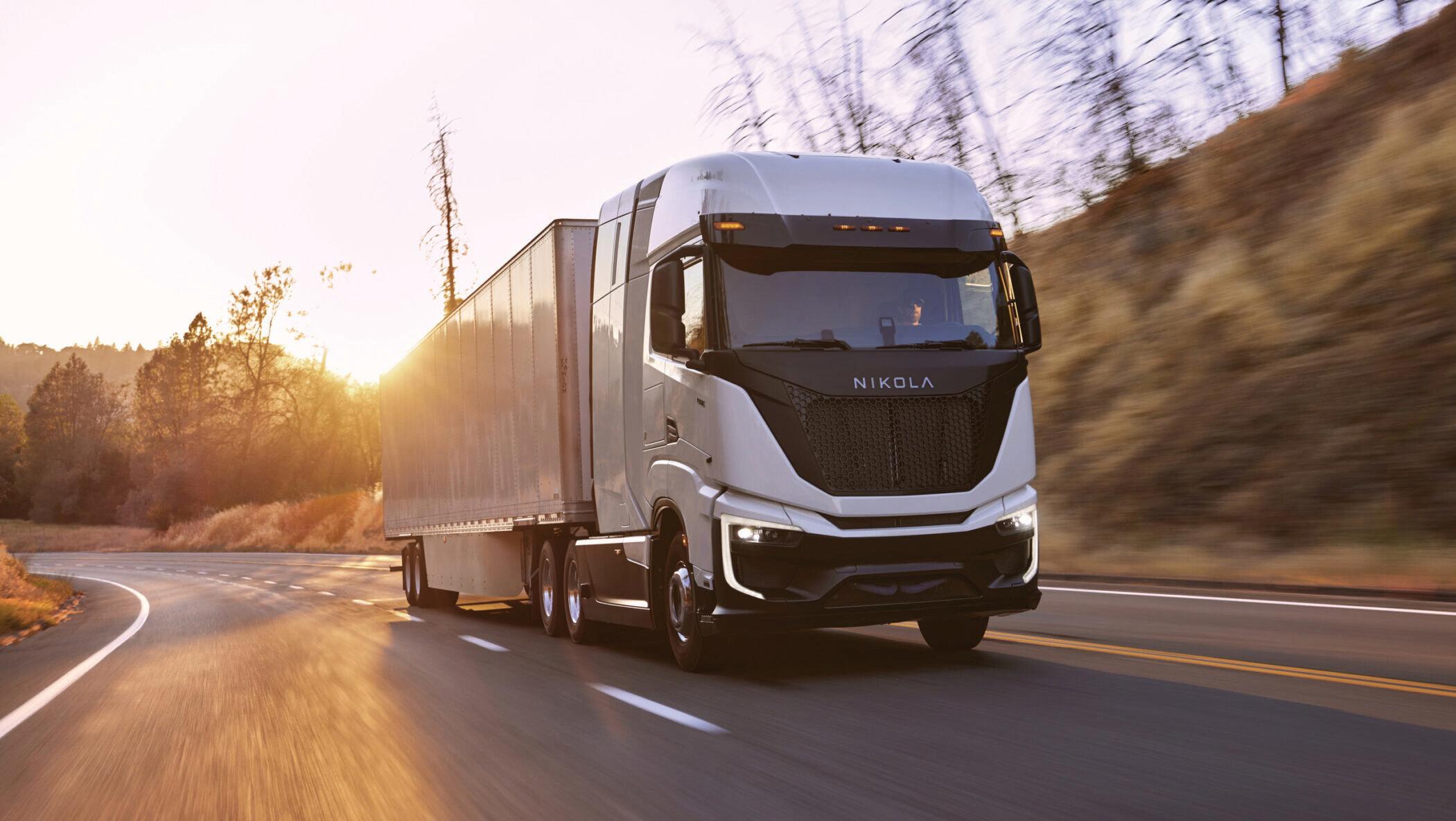
At some point, an energy crisis is inevitable – it’s not a question of if, but when. As recent global geopolitical tensions, cyberattacks, pandemics, and supply chain disruptions have demonstrated, energy security is a pressing matter of national sovereignty.
A key component of energy security is storage. While technologies, like pumped hydro and batteries have dominated discussions and are essential solutions to energy security in their own right, they are not the only energy sources that need to be stored.
For example, the International Energy Agency (IEA) must stockpile 90 days’ worth of oil imports, which can be difficult if supply chains are disrupted. Maintaining these levels is a large and growing concern.
For this reason, we as a nation should look to a national transformation and transition to e-methanol. This would reduce the need for oil imports and enable the stockpiling of a sustainable alternative. Additionally, this shift would be subsidised through optimising the electricity market.
What is e-Methanol?
Methanol, often called wood alcohol, is conventionally derived from fossil fuels. It can also be made from hydrogen and biomass. It is a flammable liquid that can be stored easily at normal temperature and pressure. It already has a strong market presence as a fuel and a precursor to many chemicals and has even been used in fuel cells to generate electricity.
There are some issues with methanol as an energy source: for example, converting electricity to methanol and back is often criticised for energy losses. However, this issue can be mitigated entirely through e-methanol, which is methanol generated from renewable sources and then optimised as part of a broader ecosystem like Sunshine Hydro’s Superhybrid system.
This Superhybrid system combines longduration energy storage, like pumped hydro, with flexible loads, such as e-methanol production. E-methanol is produced and stored, allowing the system to sell it as a fuel or ramp up electricity production when the market demands it.
A significant advantage of this approach is that it has no technical upper limit. It’s modular and can be expanded by adding more tanks, offering scalability that
traditional energy storage systems struggle to match. Superhybrid systems are versatile, allowing short-term energy market flexibility and long-term seasonal energy storage.
What does this mean for fuel security?
Beyond electricity storage, e-methanol is attractive to national sovereignty because it can also serve as a national fuel reserve.
Methanol-powered trucks are already available from manufacturers like Geely (China) and AsokLeyland (India), making the transition to methanolpowered vehicles more achievable than other alternatives. These trucks run on internal combustion engines, providing an easy way to begin decarbonising transport.
Methanol is also gaining ground in the marine sector. Around ten percent of new ships contracted can run on methanol, and smaller vessels like tugs already use methanol engines and fuel cells.
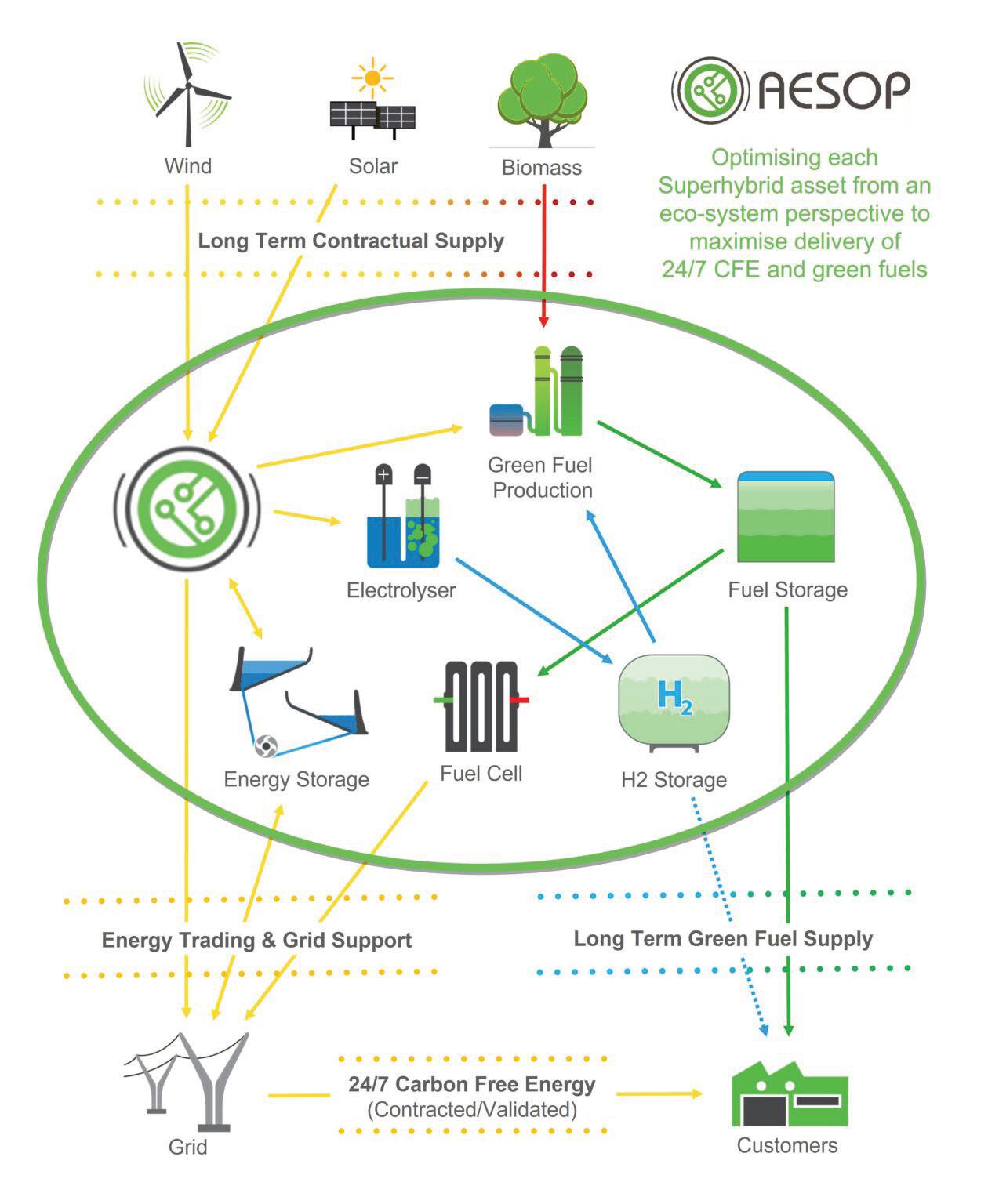

As methanol logistics expands, its use in sectors like agriculture, construction, and mining, critical areas of national security, will only increase. Another compelling reason to move to ethanol is that ultra-deep e-methanol storage is incredibly costeffective compared to traditional energy storage options.
A substantial pumped hydro project typically offers around 24 hours of storage at a capital cost of around $300 per kWh. Similarly, vanadium flow batteries cost about $700 per kWh for a 12-hour system. In contrast, scaling an e-methanol plant to include a three-month ultra-deep storage capability would make the cost per kWh system as low as $0.32 – hundreds of times cheaper than pumped hydro or battery solutions. With the ability to store energy for months, e-methanol offers a superior solution for long-term energy storage.
Overall, the energy sector must start thinking creatively to ensure energy resilience and decarbonisation. E-methanol storage presents a unique opportunity to provide long-term energy security while offering flexibility in the fuel market.
Other synthetic fuels, like Sustainable Aviation Fuel (SAF), could play a role, but of all the solutions, e-methanol should be seen as the most attractive given its scalability and economic viability. By incentivising and embracing innovative solutions like e-methanol, the nation can secure a greener, more resilient future. n





GlobalData reveals that the demand for packaged baby food has grown in APAC with the rising female workforce.
The increasing participation of women in the workforce across the Asia-Pacific (APAC) region, coupled with the hectic work schedules of dual-income households, has reshaped consumer behaviour towards packaged baby food.
GlobalData revealed that rising per capita incomes and the need for convenience have driven more significant demand for baby formula, ready-to-eat finger foods, and other baby care products in key APAC markets.
“Most countries in the APAC region have witnessed a steady increase in the female labour force during the past few years,” said Mohammed Masiuddin Shajie, Lead Consumer Analyst at GlobalData.
“The baby food sector in South Korea,
Japan, Singapore, and Malaysia is expected to grow at a higher compound annual growth rate (CAGR) than the regional average during 2023-28.”
According to the World Bank, the female labour force as a percentage of the total labour force grew from 42.1 percent in 2018 to 43.5 percent in 2023 in South Korea. In Japan, it grew from 44.1 percent in 2018 to 45.1 percent in 2023.
Countries such as Singapore and Malaysia also witnessed an increase in the female labour force during the last five years.
“Busy lifestyle is compelling parents to shift towards convenient baby food options such as baby formula milk and ready-toeat finger food/drinks. Rising per capita income in these Asian economies supports this consumer shift,” said Deepak Nautiyal, Consumer and Retail Commercial Director, APAC and ME at GlobalData.
According to GlobalData 2024 Q2 consumer survey, 13 percent of respondents reported switching to cheaper alternatives within the same brand. Meanwhile, 18 percent indicated they had opted for other, more affordable brands to reduce spending on baby care and childcare products.
Additionally, 13 percent mentioned turned to store-brand products to save money on these items.
The increasing participation of women in the workforce, coupled with the growing demand for convenient baby food options, presents a substantial growth opportunity for the baby food industry in APAC.
However, to remain competitive amidst economic pressures, manufacturers must adapt to changing consumer preferences by offering value-driven products that cater to evolving price sensitivities. n
Bp charge is expanding its national network of fast EV chargers with new charging hubs at bp Connect Tirau and bp Connect Wanaka, supported by EECA (the Energy Efficiency and Conservation Authority).
The new sites provide Kiwi EV drivers with convenient access to 150kw fast charging with six charge points at bp Connect Wanaka and ten charge points at bp Connect Tirau.
These two new charging hubs are funded by bp and EECA, with co-funding from EECA’s Low Emission Transport Fund (LETF). They join bp charge’s already operational hubs in Auckland at bp Connect Hobsonville, bp Connect Rosedale and bp Connect Smales Farm.
Haley Mahoney, Head of Country, bp New Zealand, said the new EV hubs in Tirau and
Wanaka are milestones for bp charge.
“bp charge is on a journey to create New Zealand’s most convenient EV fast-charging network.
“bp Connect Wanaka is our first hub site with EV charging in Central Otago and bp Connect Tirau has a drive-through suitable for larger vehicles, making charging on-thego a breeze.
“We’re supporting Kiwis no matter their choice of mobility, with fast EV chargers at convenient locations that offer our great wildbean cafe coffee, food and a comfortable place to take a break from a drive.”
With EECA’s support, bp charge is adding additional EV hubs at seven more bp locations in 2025 in Auckland, Bay of Plenty, Manawatu and Otago. Richard Briggs, EECA’s group manager –delivery and partnerships, said partnering
with companies like bp on public EV infrastructure projects generates insights that benefit the wider sector.
“EECA is able to learn from bp’s technical expertise that comes from their international experience and support other businesses to overcome the barriers they face. This is helping to accelerate the rollout of New Zealand’s public EV charging network," he said.
bp is committed to powering the electrification of transport and identified New Zealand as a growth region for its EV charging business.
Since beginning operations in late 2022, bp charge has installed fast EV chargers at more than 60 locations across New Zealand’s North and South Islands and plans to install the country’s first EV Gigahub™ in Christchurch later this year. n
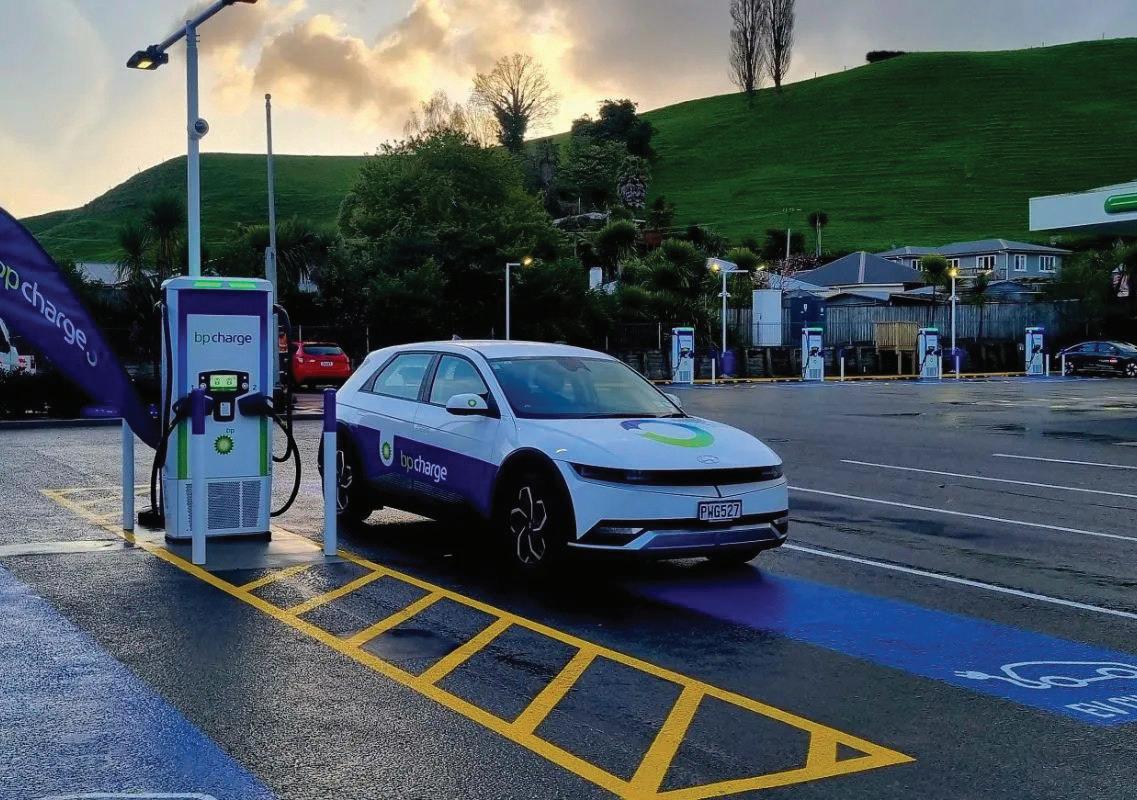




Genesis Energy will acquire a majority shareholding in ChargeNet, New Zealand's largest nationwide electric vehicle (EV) public charging network. This strategic move has positioned Genesis as a key investor in the growth of the country’s EV market and the energy transition.
Under the agreement, Genesis will acquire a 65 percent stake in ChargeNet for $64 million, including a significant investment in the business to fund its near-term growth. This investment gave Genesis a faster pathway to a new value pool identified within the company’s Gen35 strategy.
Established in 2015, ChargeNet has operated more than 400 public fastcharging points nationwide. Over 90 percent of New Zealand’s EV owners are registered as customers.
With a substantial development pipeline, ChargeNet is poised to drive further growth as New Zealand's shift toward sustainable transport gains momentum.
Genesis’ investment will enable ChargeNet to accelerate that growth, with charge points expected to double by 2030. This also supported the government’s goal of having a national network of 10,000 chargers by 2030.
Chief Retail Officer Stephen EnglandHall emphasised the deal's importance in progressing Genesis’ strategy of supporting customers to electrify their lives and achieve
a 30 percent market share in EV customers by FY28. The investment will support the country’s net zero 2050 goal while delivering customer value.
“Decarbonising transport is crucial for New Zealand's future, and public charging infrastructure is a key element of that transition. This partnership combines ChargeNet’s market leadership with Genesis’ energy expertise and customer reach, enabling us to play a leading role in shaping the future of transport in New Zealand,” said England-Hall.
“With nearly 500,000 customers, Genesis can accelerate ChargeNet’s market leadership by utilising our energy management expertise, guiding larger customers through fleet transitions and ensuring we deliver the best charging network for the country’s EV drivers."
He saw strong potential in the New Zealand EV market. He said that rapid charging infrastructure was crucial for this transition, and Genesis’ investment would accelerate a faster nationwide rollout, increase customer access and drive value for shareholders.
Even with road user charges and a mix of at-home and public charging, running an EV was still more cost-effective than driving an ICE car.
Genesis has committed to a $1.1 billion investment in renewable electricity infrastructure. This includes the recent
$150 million investment in a 100 MW/200 MWh grid-scale battery at Huntly Power Station and the delivery of up to 500 MW of grid-scale solar by FY28.
ChargeNet CEO Danusia Wypych said the partnership with Genesis would accelerate network expansion and scale operations, benefiting all consumers.
“Since our inception, we have been committed to reducing New Zealand’s reliance on fossil fuels in transport. We are proud of what we have achieved and excited about what lies ahead,” said Wypych.
“With Genesis as a strategic partner, we intend to double the pace of installations and develop new solutions to ensure faster, more reliable charging experiences for all customers.”
New Zealand is still in the early adoption phase with EVs, which account for around four percent of the country’s light passenger vehicle fleet. This is expected to increase to more than 25 percent within the next eight years.
By expanding the country’s charging infrastructure and integrating advanced energy solutions, Genesis and ChargeNet aim to make EV adoption more accessible and convenient for all New Zealanders.
The investment in associates falls outside Genesis’ FY25 capital expenditure guidance. However, the FY25 EBITDAF guidance has remained unchanged at $460 million. n
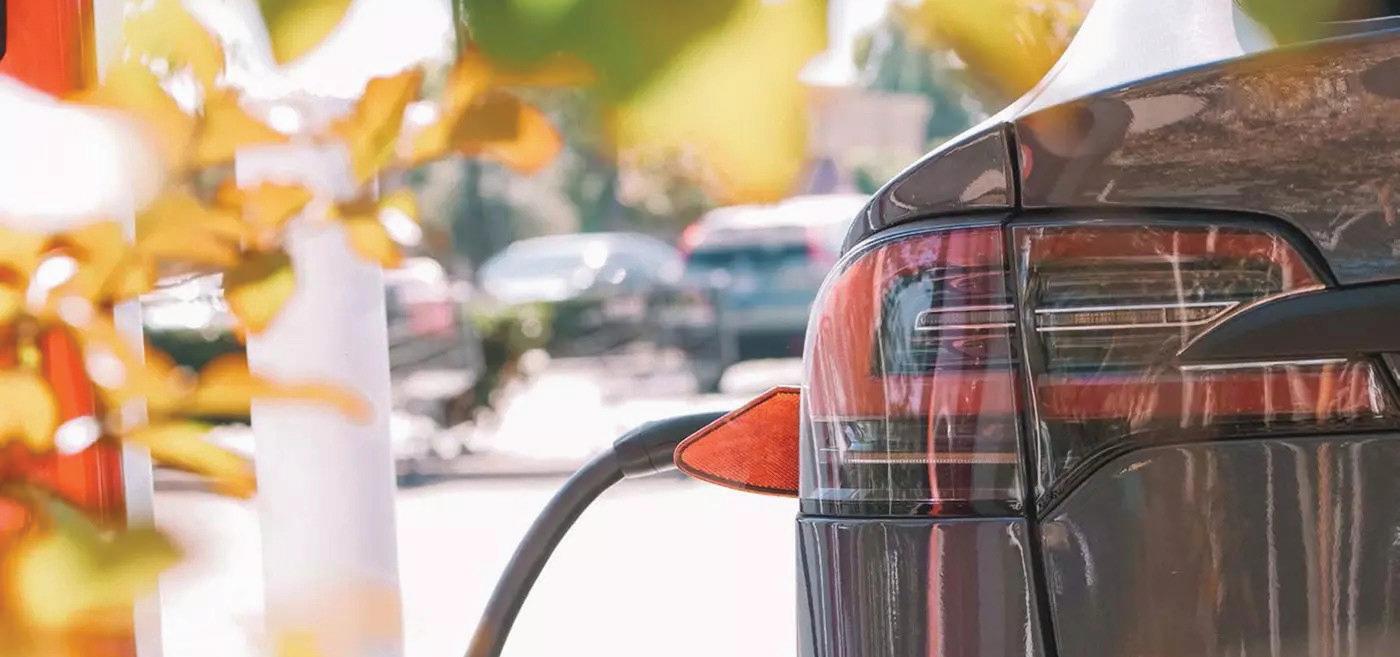
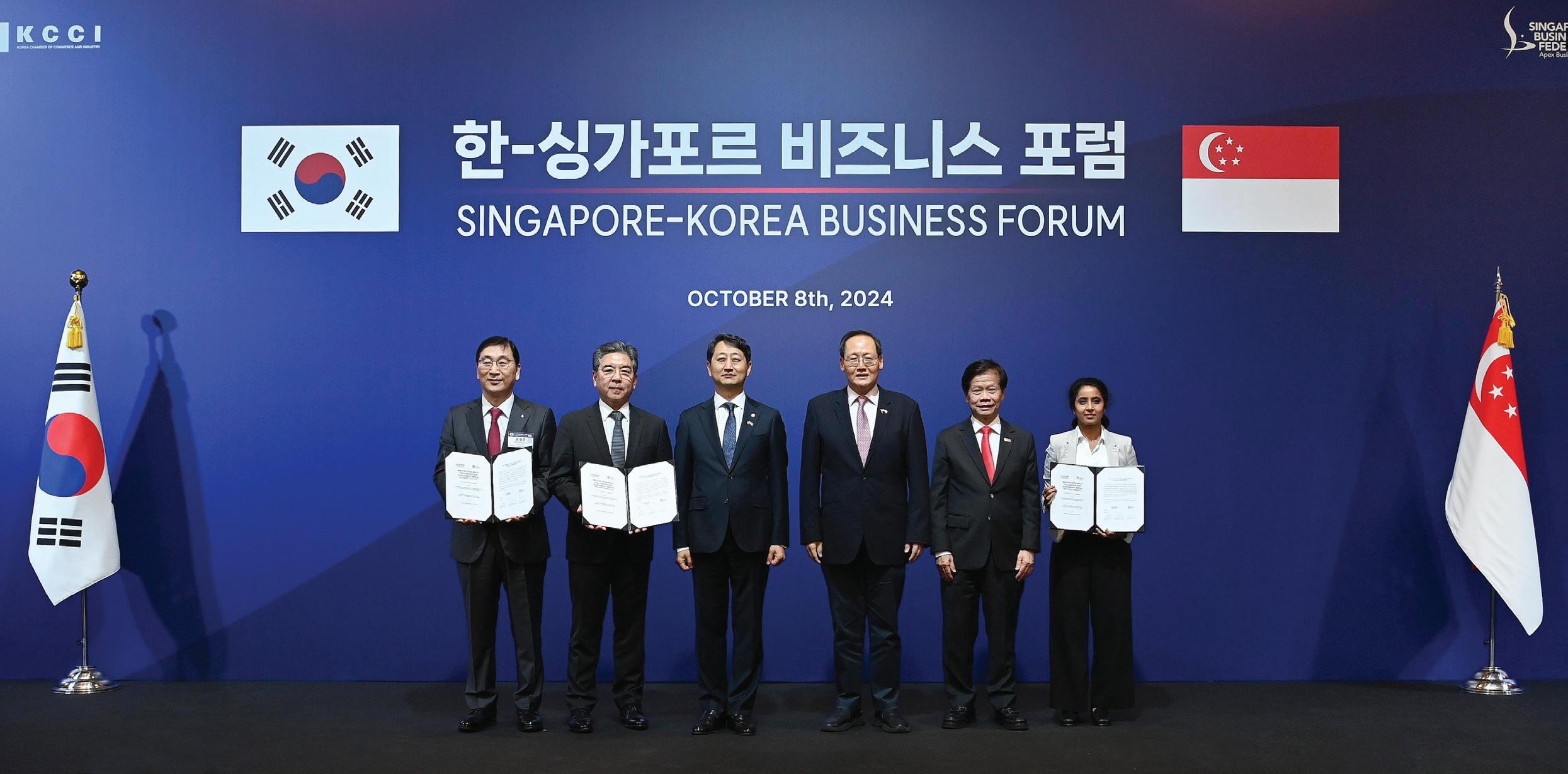
Hyundai Motor Group (the Group) has signed a collaborative research agreement with Nanyang Technological University, Singapore (NTU), in the field of new energy. The partnership will encompass a three-year research collaboration focusing on hydrogen energy business and advanced energy systems.
This collaboration between the Group and NTU, a globally renowned university, aims to bring Singapore closer to achieving carbon neutrality. The partnership will focus on developing alternative energy sources that leverage the Group's advanced energy technologies and suit Singapore's unique characteristics.
“HMGICS is a global hub for Hyundai Motor Group’s future mobility innovation,” said Hyun Sung Park, Vice President and CEO of Hyundai Motor Group Innovation Center Singapore (HMGICS).
“Through this partnership, we aim to accelerate our research in innovative technologies, ultimately enhancing the commercial viability of our sustainable mobility solutions.”
The signing ceremony, which took place at the Singapore-Korea Business Forum, Ritz Carlton Singapore this month, was attended by Jaehoon Chang, President and CEO of Hyundai Motor Company; YoungJoon Yoon, President and CEO of Hyundai Engineering & Construction (Hyundai E&C); Hyun Sung Park, Vice President and CEO of HMGICS; Professor Lam Khin Yong, Vice President (Industry) of NTU;
Professor Madhavi Srinivasan, Executive Director of Energy Research Institute at NTU; Duk-Geun Ahn, Minister of Trade, Industry and Energy of the Republic of Korea; and Dr Tan See Leng, Minister for Manpower and Second Minister for Trade and Industry of Singapore.
Singapore has faced challenges in achieving carbon neutrality as a citystate due to its limited natural resources and heavy reliance on natural gas, which accounted for 95 percent of its power generation. However, it has also been expected to see a growing role for hydrogen energy and advanced energy systems in its efforts to achieve carbon neutrality.
One key area of focus will be studying the adoption of hydrogen production technologies and businesses in Singapore. This includes implementing Hyundai Motor Group’s innovative resource-cycle hydrogen production technologies: Plastic-toHydrogen (P2H) and Waste-to-Hydrogen (W2H) systems.
W2H uses organic waste, such as food and sewage sludge, to produce hydrogen, while P2H uses non-recyclable plastic.
In the field of advanced energy system research, the Group and NTU have set their sights on developing a solution well-suited for urban countries like Singapore.
Thanks to its modular design, the advanced energy system offered the advantages of easy installation and high safety levels, playing a vital role in achieving carbon neutrality in Singapore.
HMGICS also recently held a joint
signing ceremony to establish a tripartite research center with NTU and the Agency for Science, Technology, and Research (A*STAR). The Corporate Lab Program will conduct research in innovative manufacturing domains such as AI, robotics, and 3D printing.
This significant milestone will accelerate innovations in adopting innovative technologies to create a collaborative future mobility ecosystem in Singapore.
“The research partnerships between NTU Singapore and Hyundai Motor Group reflect how close collaboration with industry is vital in developing innovative and relevant solutions to address real-world issues, including the race to carbon neutrality,” said Professor Lam Khin Yong, Vice President (of industry) of NTU.
“We will continue to build on our longstanding partnership with Hyundai Motor Group, leveraging NTU’s core strengths in sustainable energy, AI, robotics, 3D printing, and advanced materials to develop innovative and sustainable solutions for Singapore and the global society.”
The collaboration between Hyundai Motor Group, NTU and A*STAR highlighted HMGICS's transformative influence on manufacturing and customer experience.
Driven by a shared strategic vision, this partnership aims to create world-leading, innovative, sustainable mobility solutions that benefit all. Hyundai Motor Group aims to advance technology and develop sustainable solutions, contributing to a greener future in Singapore. n





